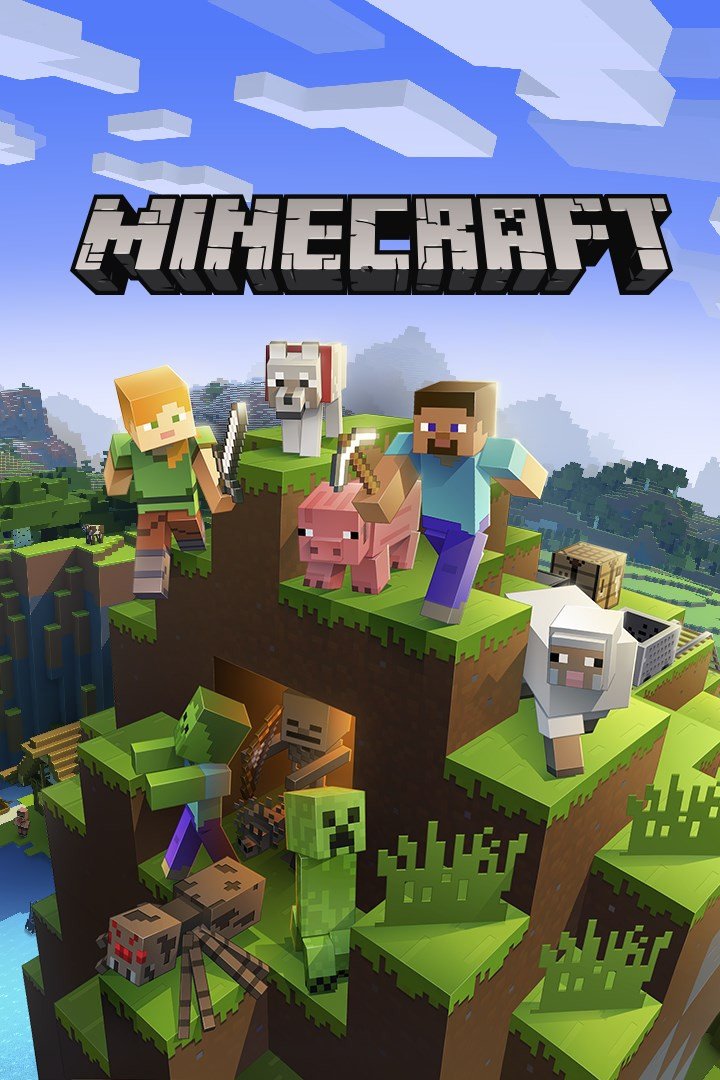Minecraft Guide to Biomes: A list of every biome currently in the game
Explore every single one
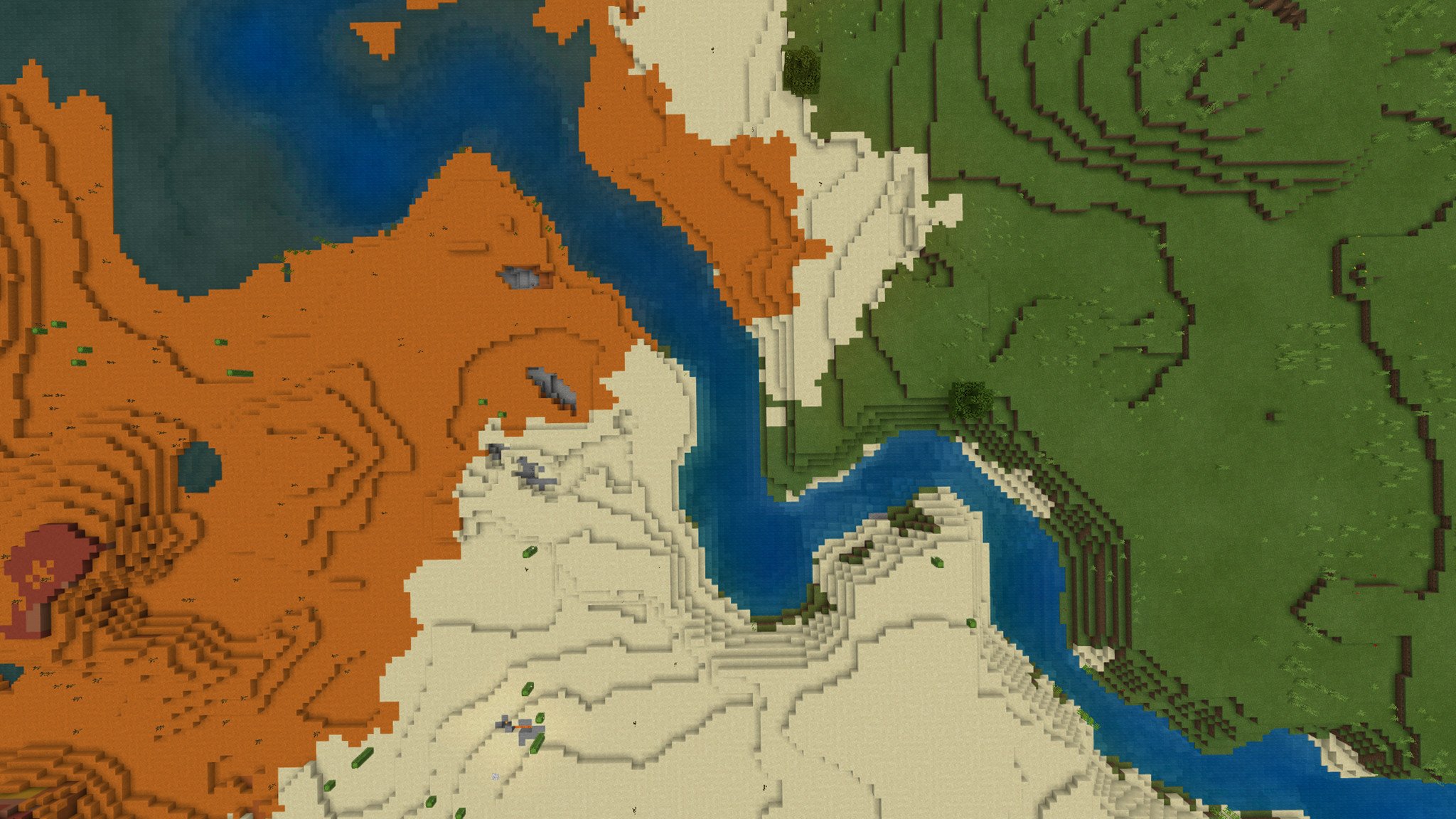
Minecraft divides its Overworld into a variety of biomes, which are interconnected areas with different ecosystems, features, weather patterns, and resources. They spice up your exploration with a dash of diversity and showcase different NPC structures like temples and villages. Here's every biome you can currently find in Minecraft, and what makes each on special.
Plains
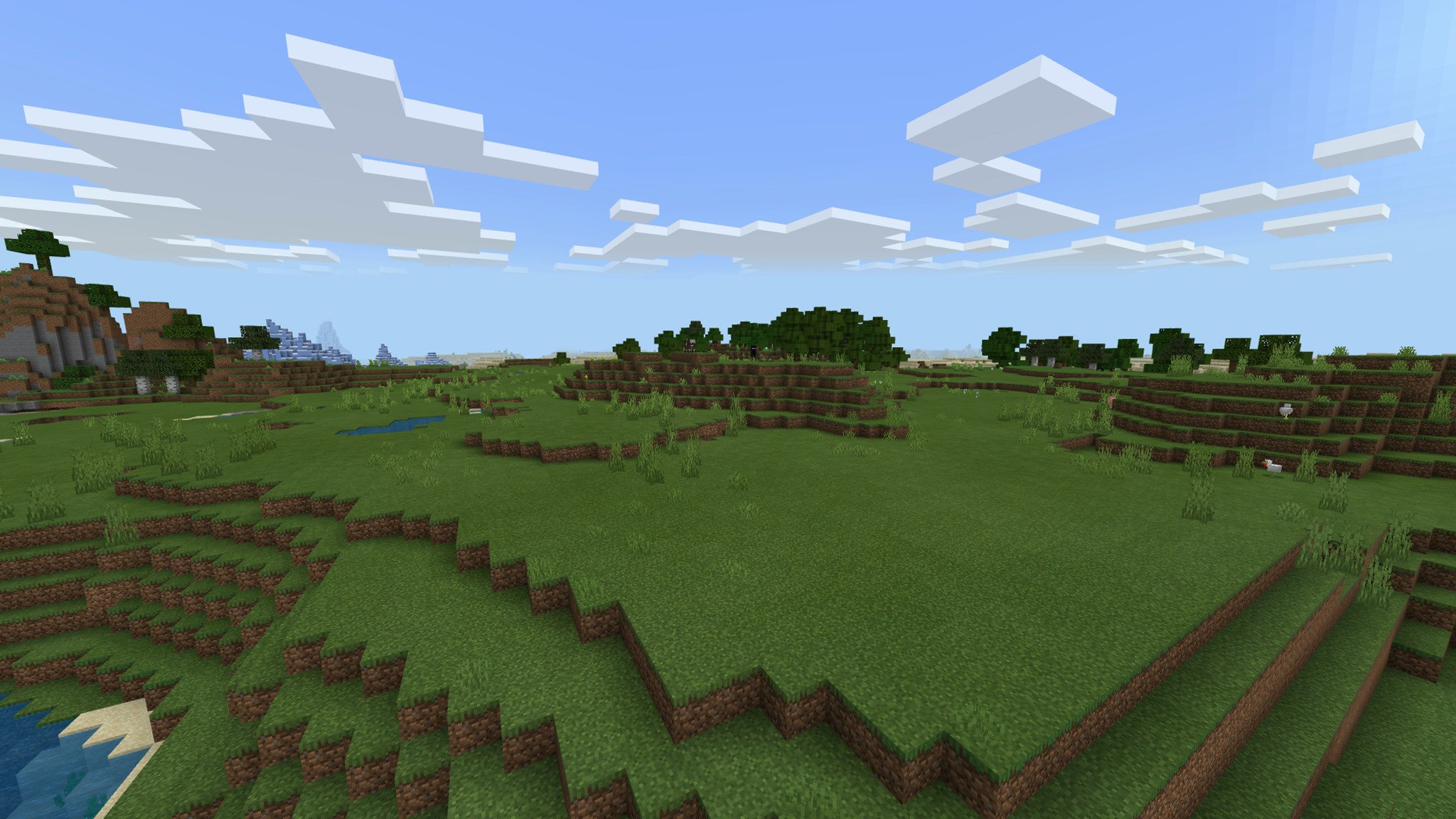
The plains are going to be your default biome. They're very common, very identifiable, and contain almost everything one might need to start their journey. Plains spawn lots of passive (and edible) mobs like pigs, cows, and sheep, have easily discoverable caves and ravines, and generate plenty of villages. Horses can also spawn here.
They also usually border forests, so almost all resources you might need are within easy reach. Plains are one of the best places to start, because it's easy to keep your bearings and even easier to build up your awesome base.
Sunflower plains
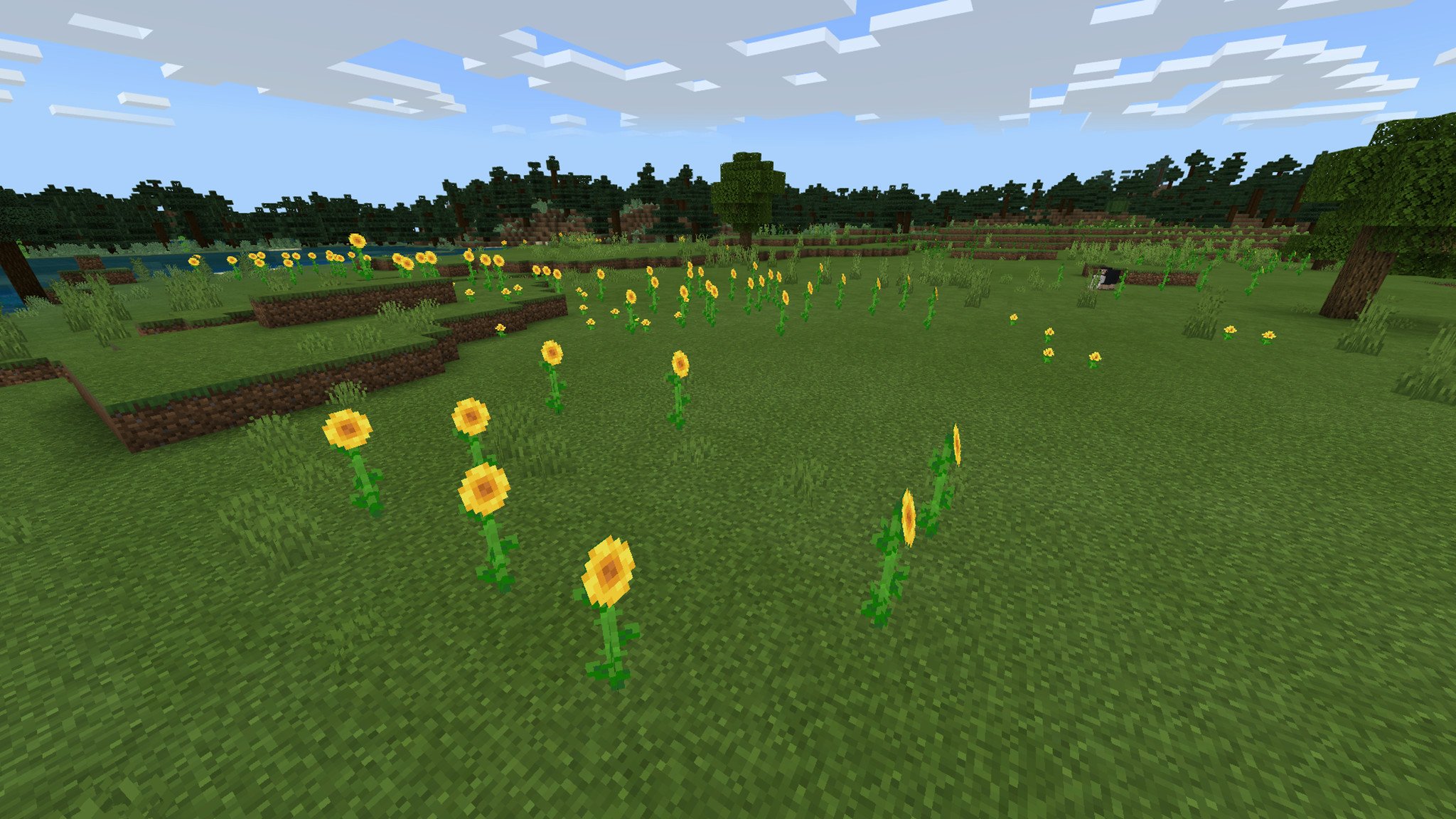
A variation of the plains biome that is the only place in the game that sunflowers will spawn. Sunflowers are these excellent looking plants that will follow the sun as it treks across the sky.
Other than the sunflowers, these biomes are pretty much identical to normal plains. In fact, they're usually contained inside of much larger plains, so they're definitely a sub-biome.
Forest
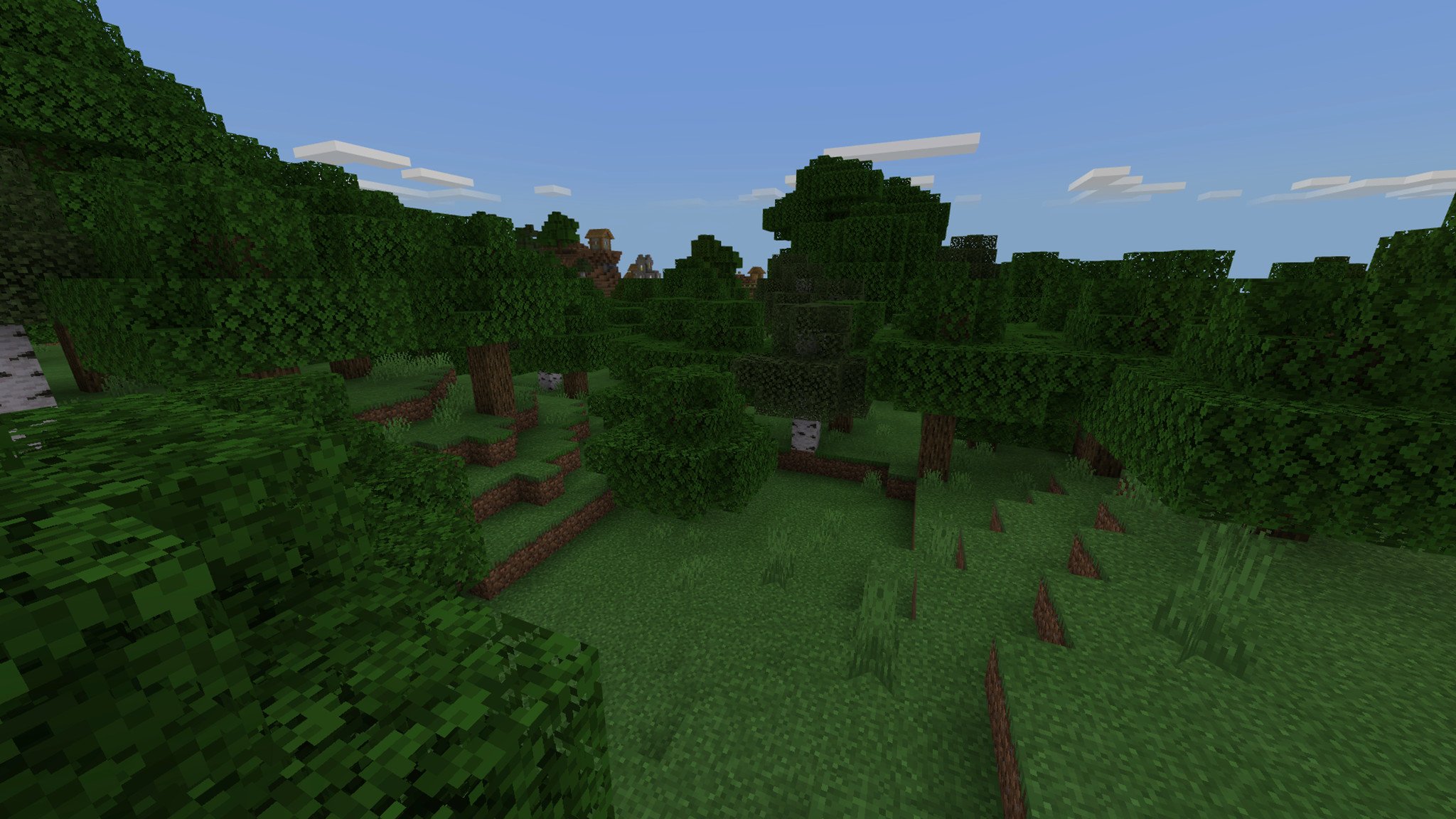
Forests are awesome to have nearby, since the abundance of wood makes them an obvious choice for any Minecraft player. Basic forests are a combination of oak and birch trees, as well as flowers and mushrooms.
This is a perfect biome to start with, if you remain wary at night of hostile mobs. The closed and clustered environment means it's difficult to see, so forests are best paired with an open biome like plains.
All the latest news, reviews, and guides for Windows and Xbox diehards.
Flower forest
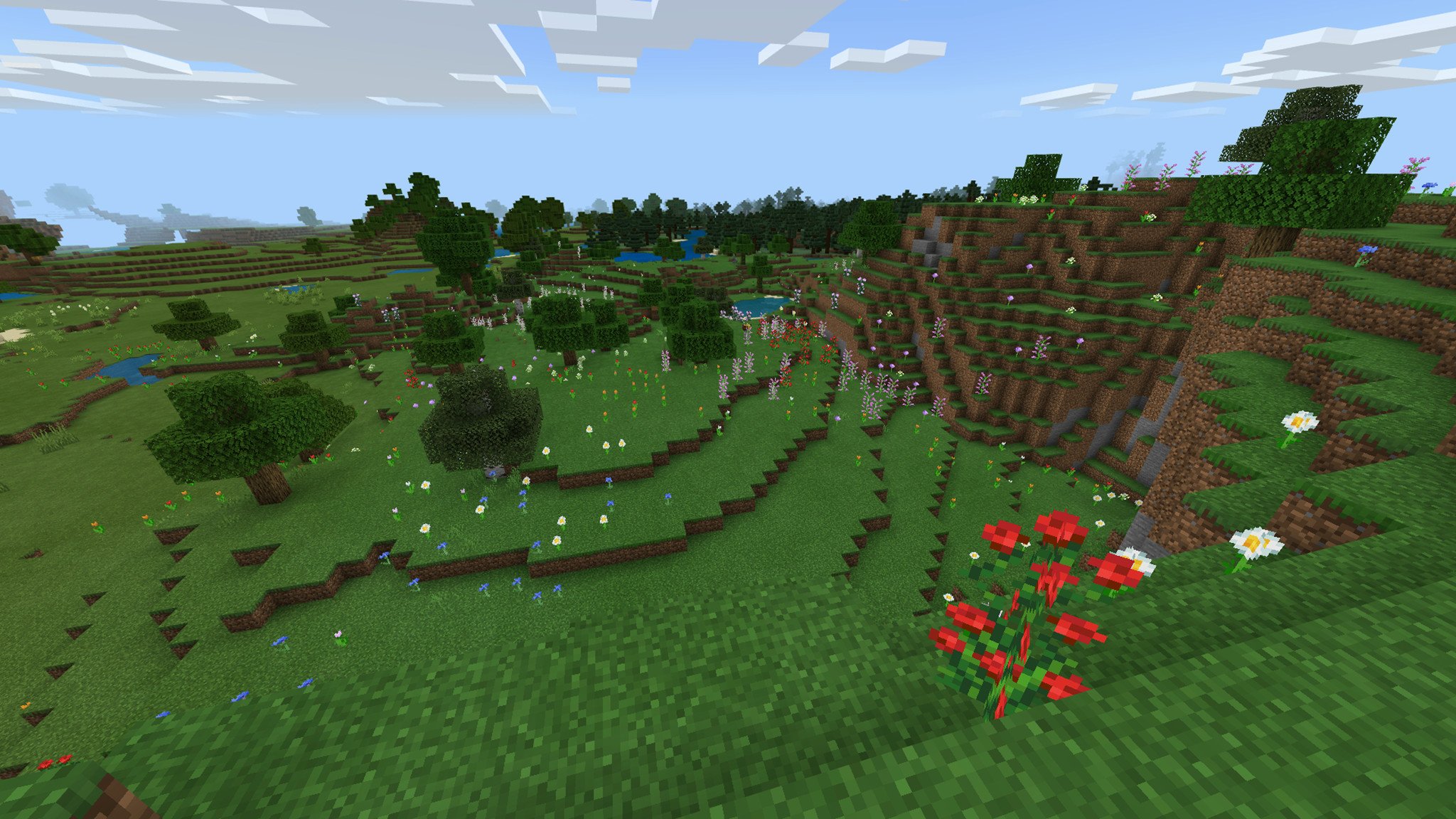
The flower forest is a rare variation of the normal forest that features fewer trees but an overabundance of, well, flowers. In fact, the flower forest grows nearly every kind of flower and fauna available in the game, including many that are exclusive to the forest flower.
This forest is a great find, even if it's not as rich in wood as its normal counterpart. If you're hunting for every color of dye in the game or are cultivating a beautiful garden, this is the place to go.
Birch forest
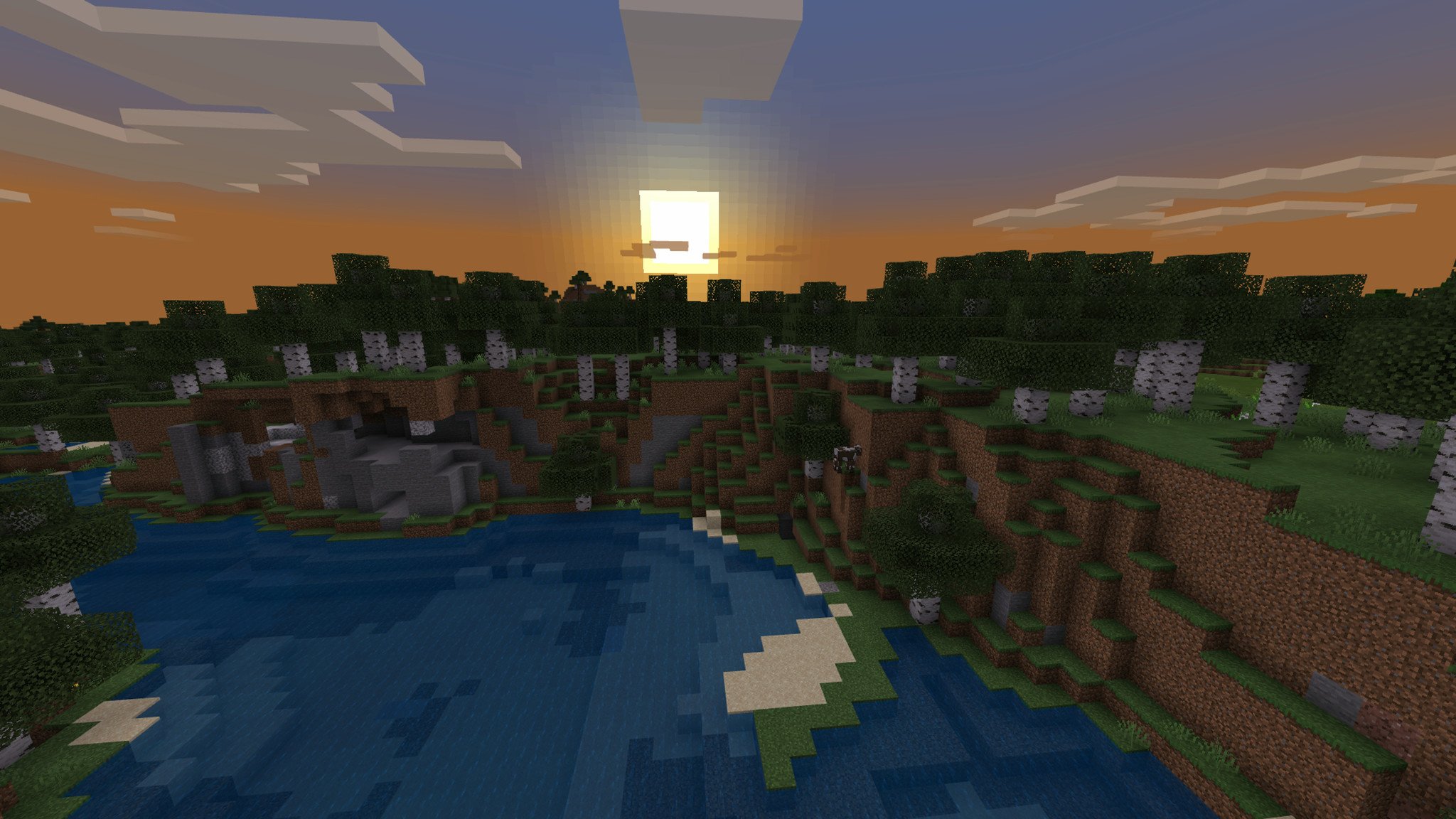
The birch forest is essentially a regular ole' forest, but with nothing but birch trees. These biomes are also uncommon and don't have any real advantage over a typical forest.
If you're a massive fan of birch wood, finding one of these forests might be a big boon for you. Otherwise, most will be better served by a traditional forest.
Dark forest
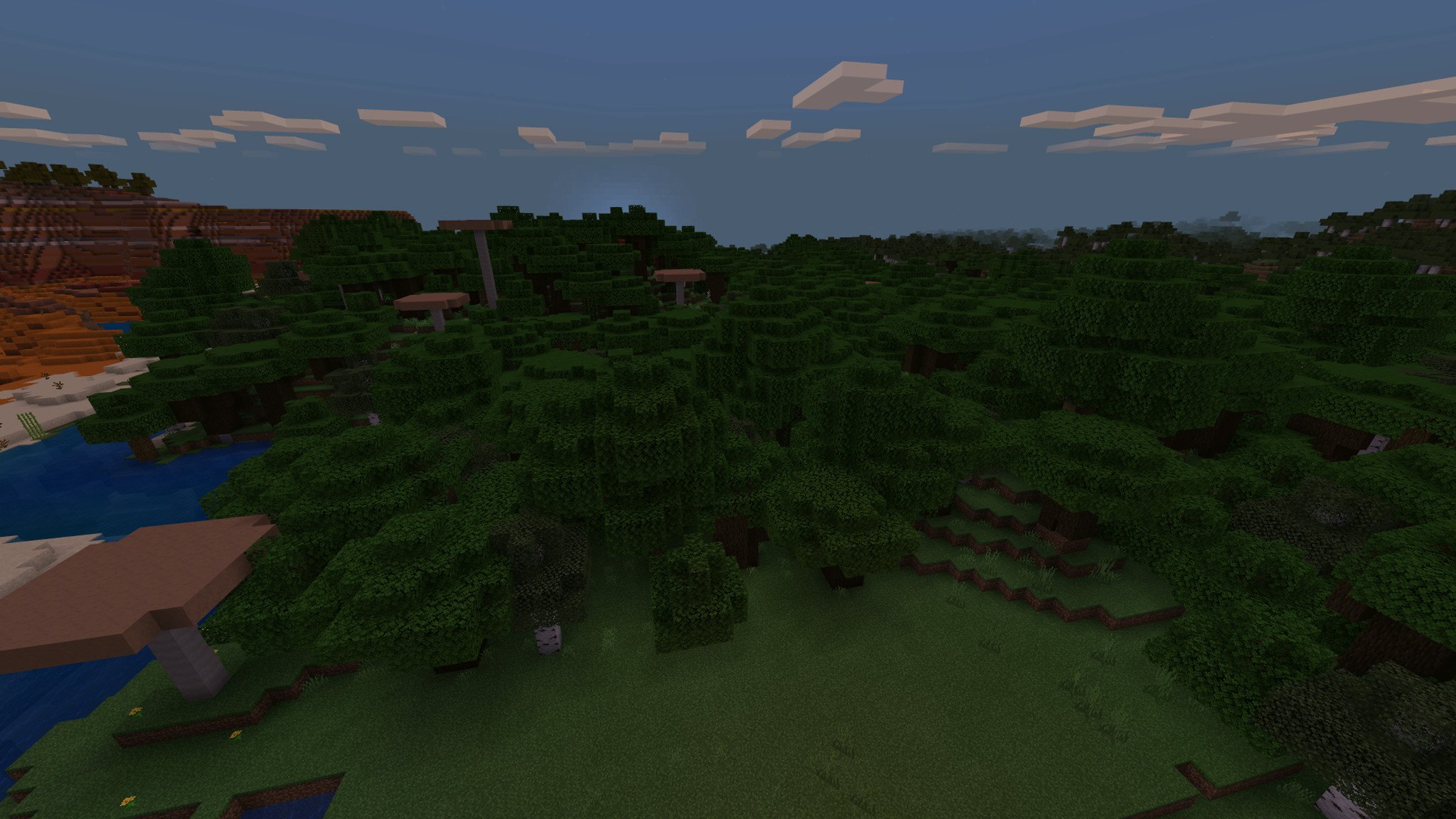
Dark forests are intriguing biomes comprised mostly of dark oak trees and a few large mushrooms. Trees in this biome are so tightly packed that the resulting shadows from their leaves can actually spawn hostile mobs even during the day.
Beyond that, dark forests are the only biome that can spawn woodland mansions. These are among the rarest structures in all of Minecraft. They are truly massive houses that contain dangerous, hostile mobs and tons of loot.
Jungle
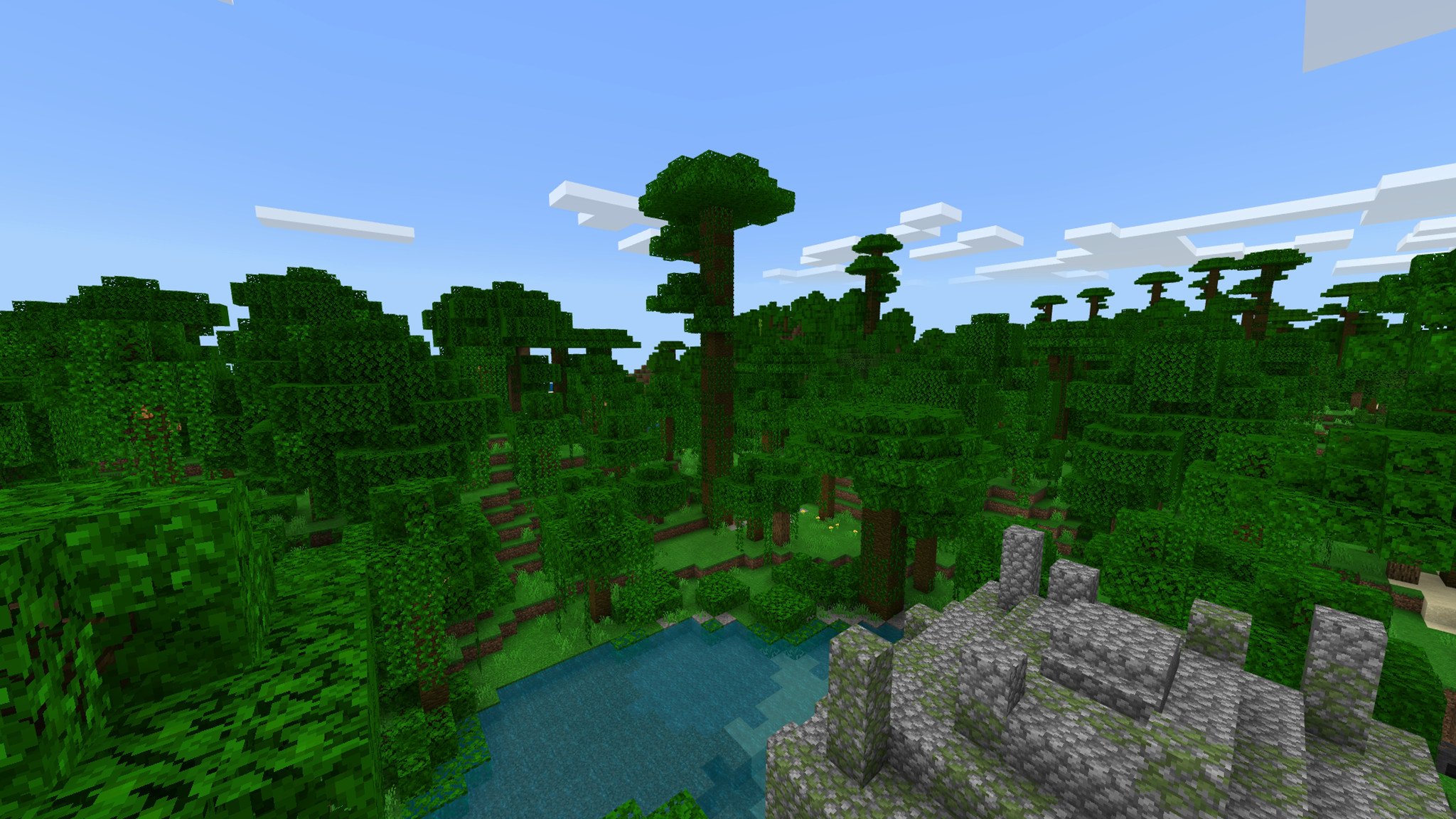
Jungles are relatively uncommon in Minecraft. However, they are some of the most challenging biomes in terms of size and how difficult they are to travel across. Jungles have jungle trees that grow much taller in comparison to basically any other tree in the game, and often completely cover the surface of the ground in thick foliage.
Jungles are varied in terrain but are almost always annoying to come across. You can find cocoa pods, melons, vines, parrots, pandas, and jungle temples here, so jungles do partially make up for it with all you can find here — a biome for the more adventurous.
Bamboo jungle
This unique biome typically generates inside of larger jungle biomes. It features far fewer jungle trees and overall foliage in comparison, but has a tremendous amount of bamboo covering the ground. Regular wildlife like ocelots and parrots can spawn here.
The most significant feature of the bamboo jungle, besides the bamboo, is the increased spawning rate of Minecraft's adorable pandas. What do pandas do? Not much, besides eating bamboo. It's still an interesting biome. It's also relatively rare, which is why I have yet to capture a picture of one. Stay tuned.
Jungle edge
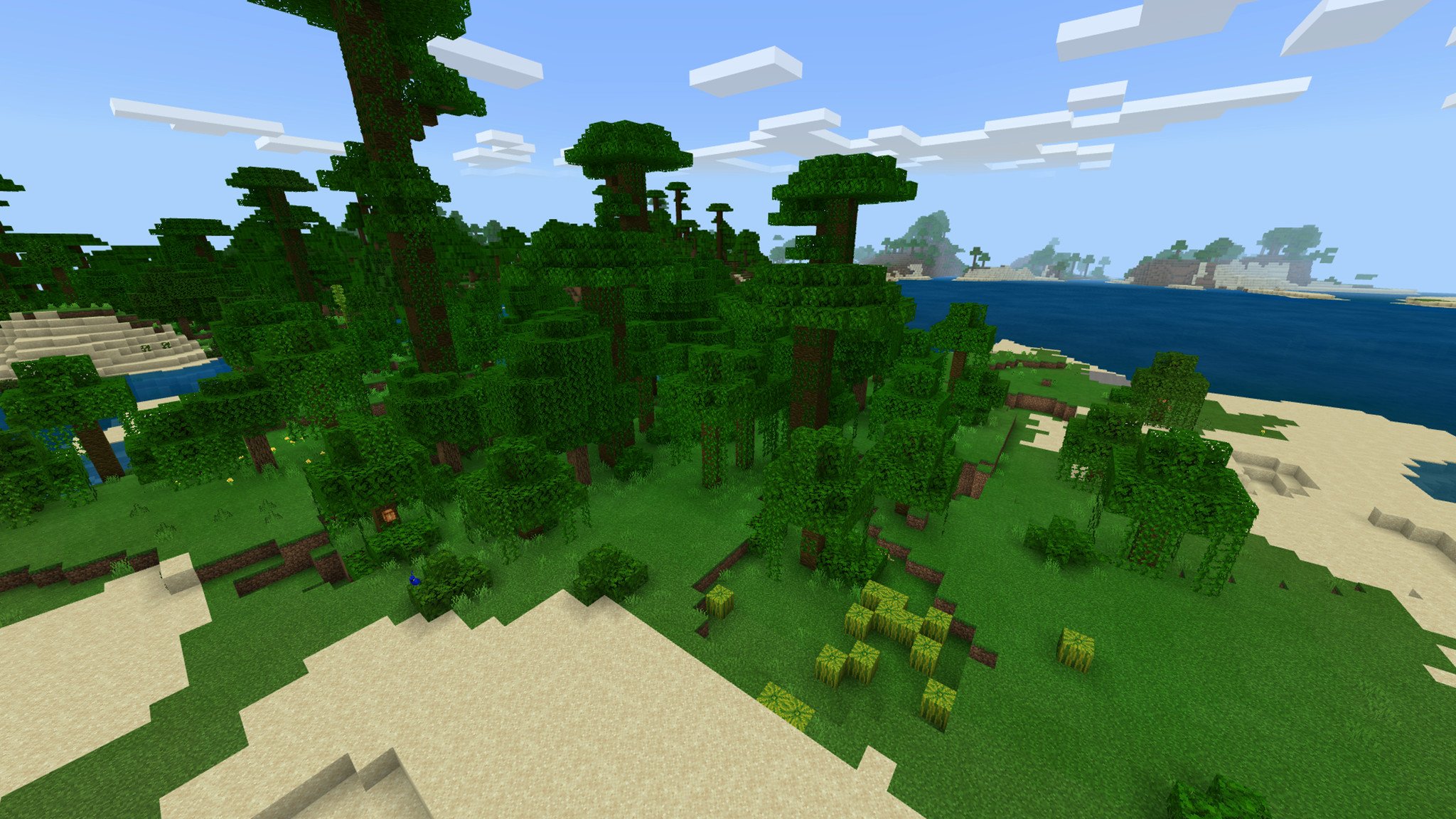
The jungle edge biome is another sub-biome that occurs when a jungle meets another biome. It's essentially a way for Minecraft to fade into a jungle, rather than suddenly coming onto a giant wall of trees.
Anything that can spawn in jungles can technically spawn in a jungle edge biome, just in much smaller numbers. For the most part, this biome is typically clear and has a gradually sloping terrain.
Mountains
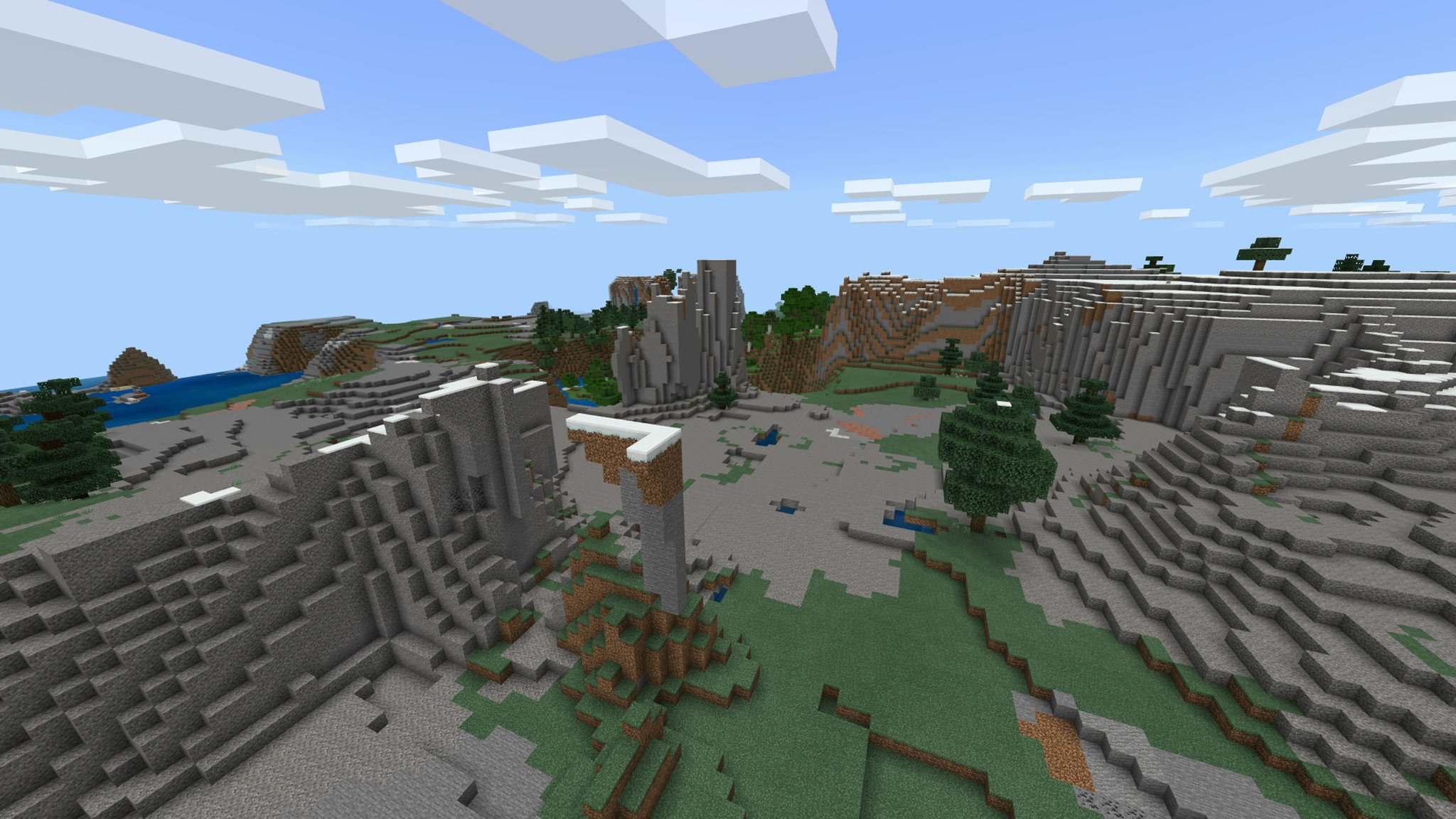
One of the most recognizable biomes by far, mountains are known for their often-random generations, resulting in beautiful hanging islands, alcoves, spires, and more. Mountains come in many different forms, and can often be a variation of an existing biome, like a taiga. You can also find llamas here.
Mountains are also the only biome that emerald ore generates in, making them a useful place to set up shop for a mine. An excellent place to start if you're willing to put in the enormous amount of time required to make the mountains your home.
Gravelly mountains
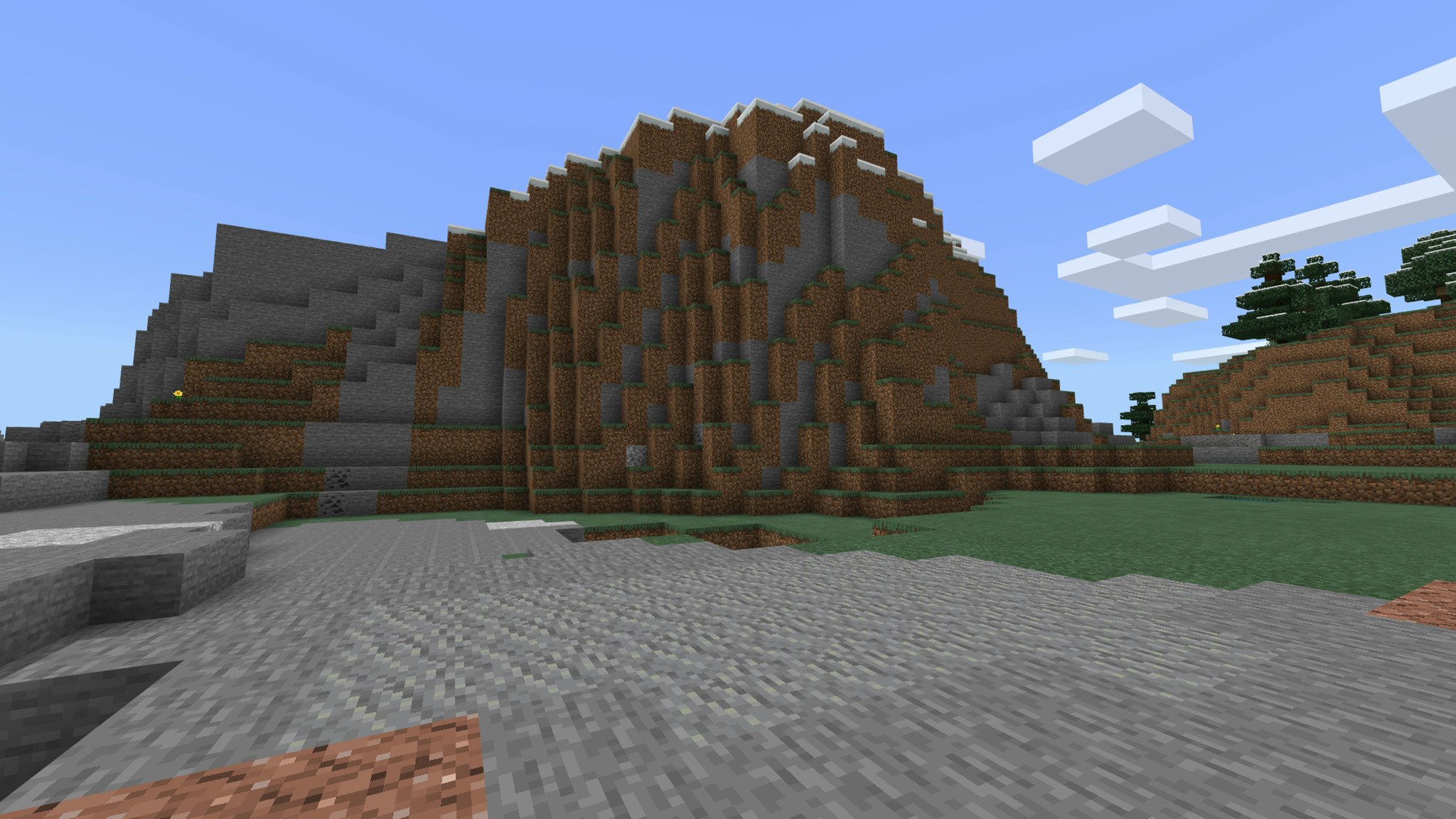
An unusual alternative form of the mountain biome, gravelly mountains often stand a bit taller than their standard brethren. As the name implies, the surface of these mountains is comprised almost entirely of gravel.
They otherwise share many of the same traits as the mountains, although not as good of a choice for mines. Gravel is always a danger when mining underground due to cave-ins, and the risk is considerably higher in these biomes.
Wooded mountains
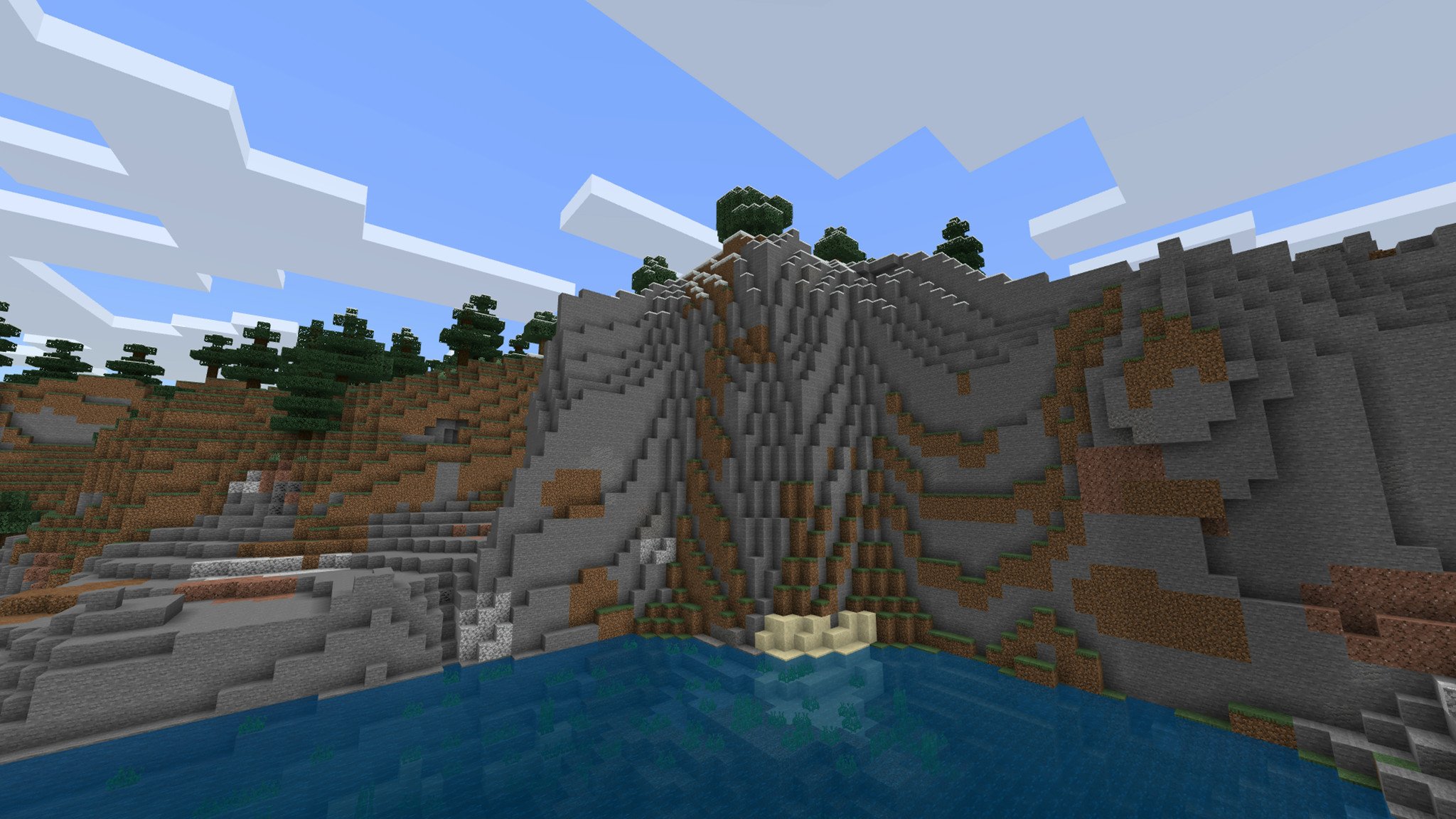
Trees are extremely rare in other mountain biomes but can frequently spawn in a wooded mountain. These biomes often form adjacent to or inside of a normal mountain biome, and features taller and more aggressively steep slopes.
This biome makes for an interesting landscape but is difficult to scale, with little return. Out of the three primary mountain biomes, this one is possibly the most extreme.
Desert
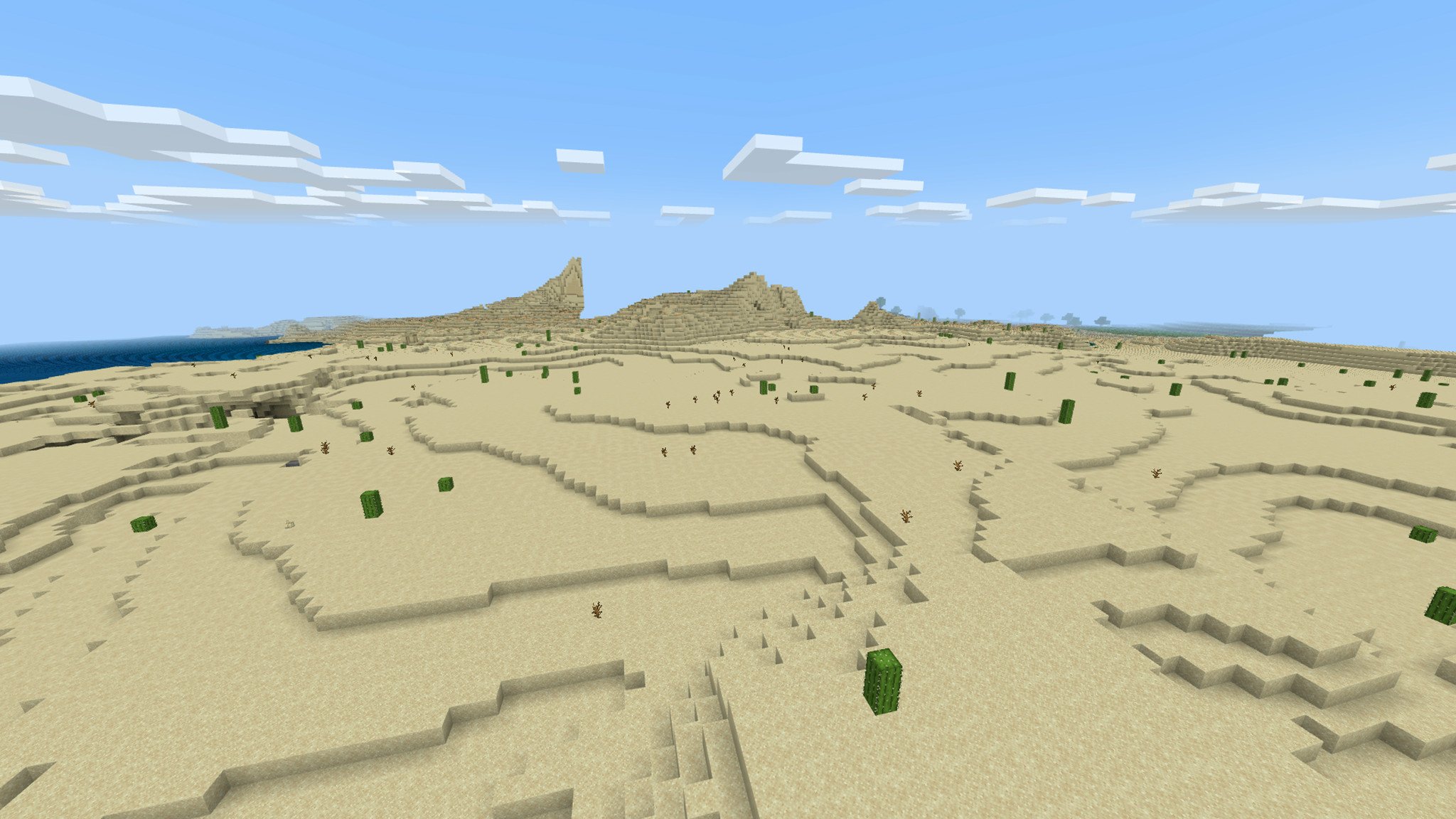
If there were a perfect trifecta of the original biomes, it would indubitably be the plains, forests, and deserts of Minecraft. Deserts are dry, mostly barren biomes strewn all across Minecraft that contain sand, sandstone, dead bushes, brown rabbits, and cacti. Pretty much exclusively those.
You can also find desert villages, temples, wells, pillager outposts, and the occasional lake to break it all up. The desert is filled with hostile mobs at night, mostly creepers and husks, but it's easy to stay safe if you pay attention to your surroundings. Deserts are pretty flat and have little to disrupt your view.
Desert lakes
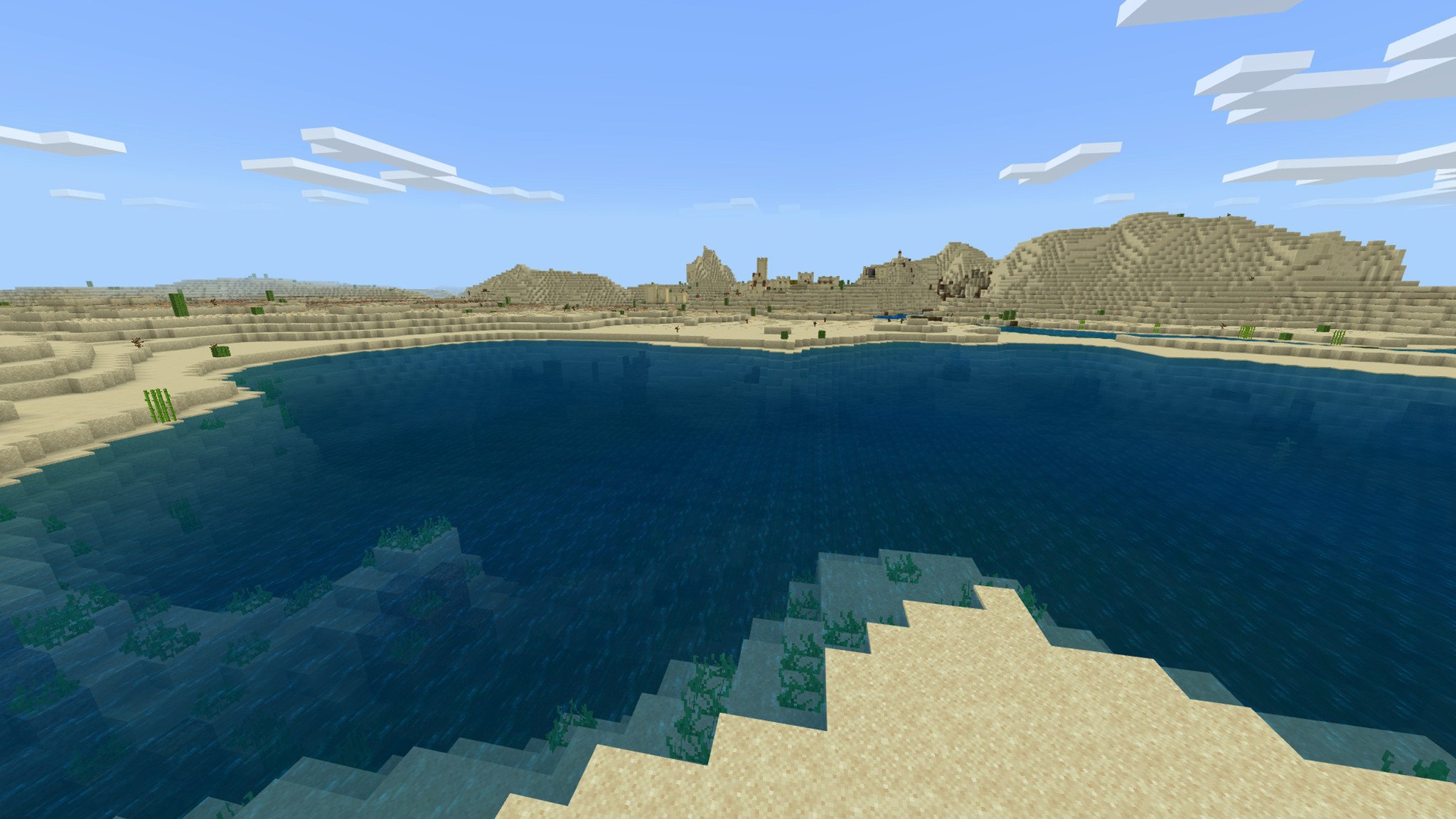
Another one of those rare biomes that seem to be pretty common in Minecraft. The desert lake biome is the existence of a lake or other body of water in the middle of a desert. There's not much to say about the desert lakes biome, except that structures like villages and temples will not spawn in them, so look elsewhere for that.
Taiga
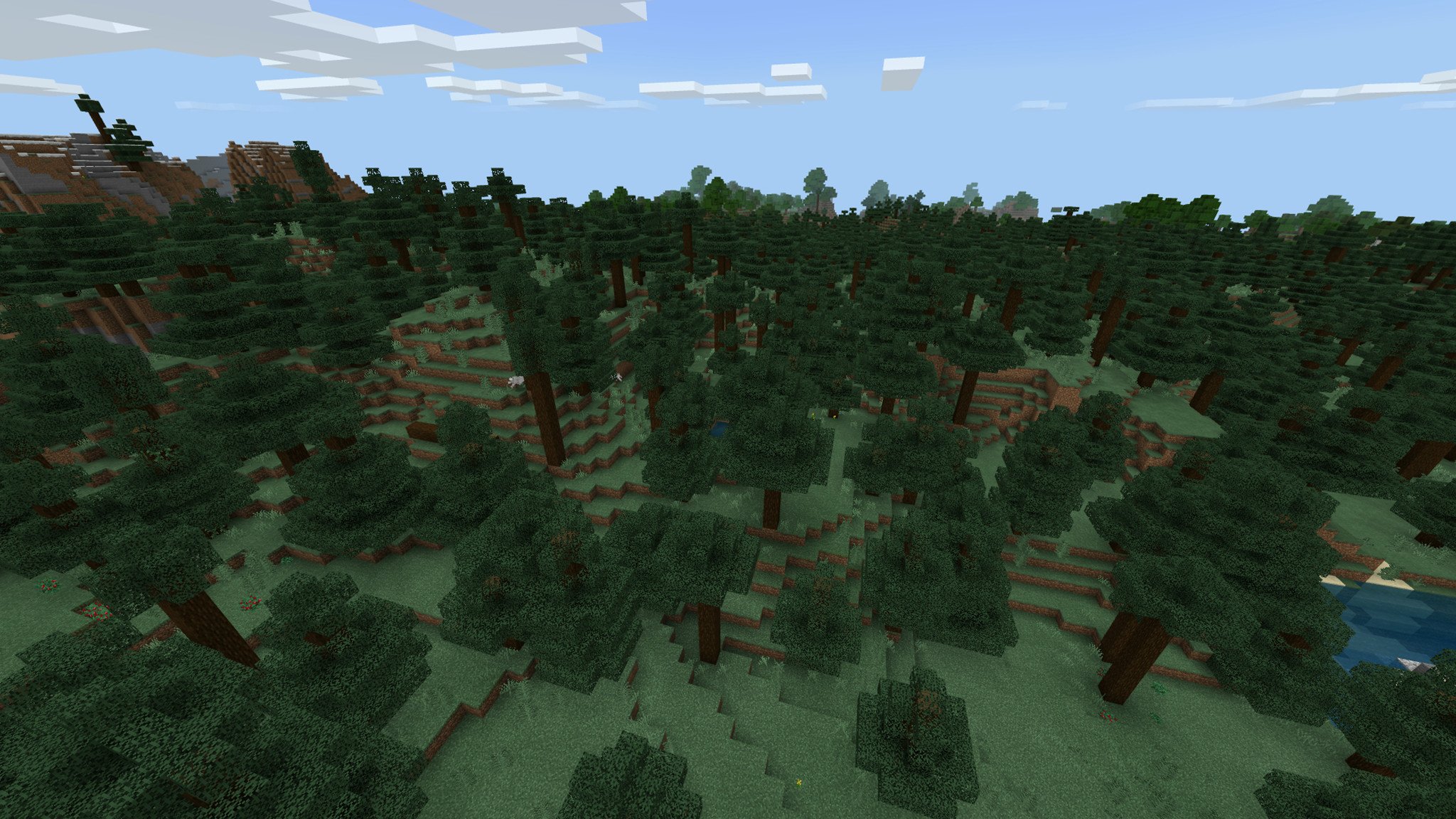
This biome sits alongside the forest and jungle biomes as the great wooded worlds of Minecraft. Prominently featuring spruce trees and ferns, the taiga is a darker, more spread out variation of a normal forest.
Taigas can feature wolves, foxes, sweet berry bushes, villages, pillager outposts, and much more. They're one of the best biomes to begin with and come in snowy and mountainous variations.
Giant tree taiga
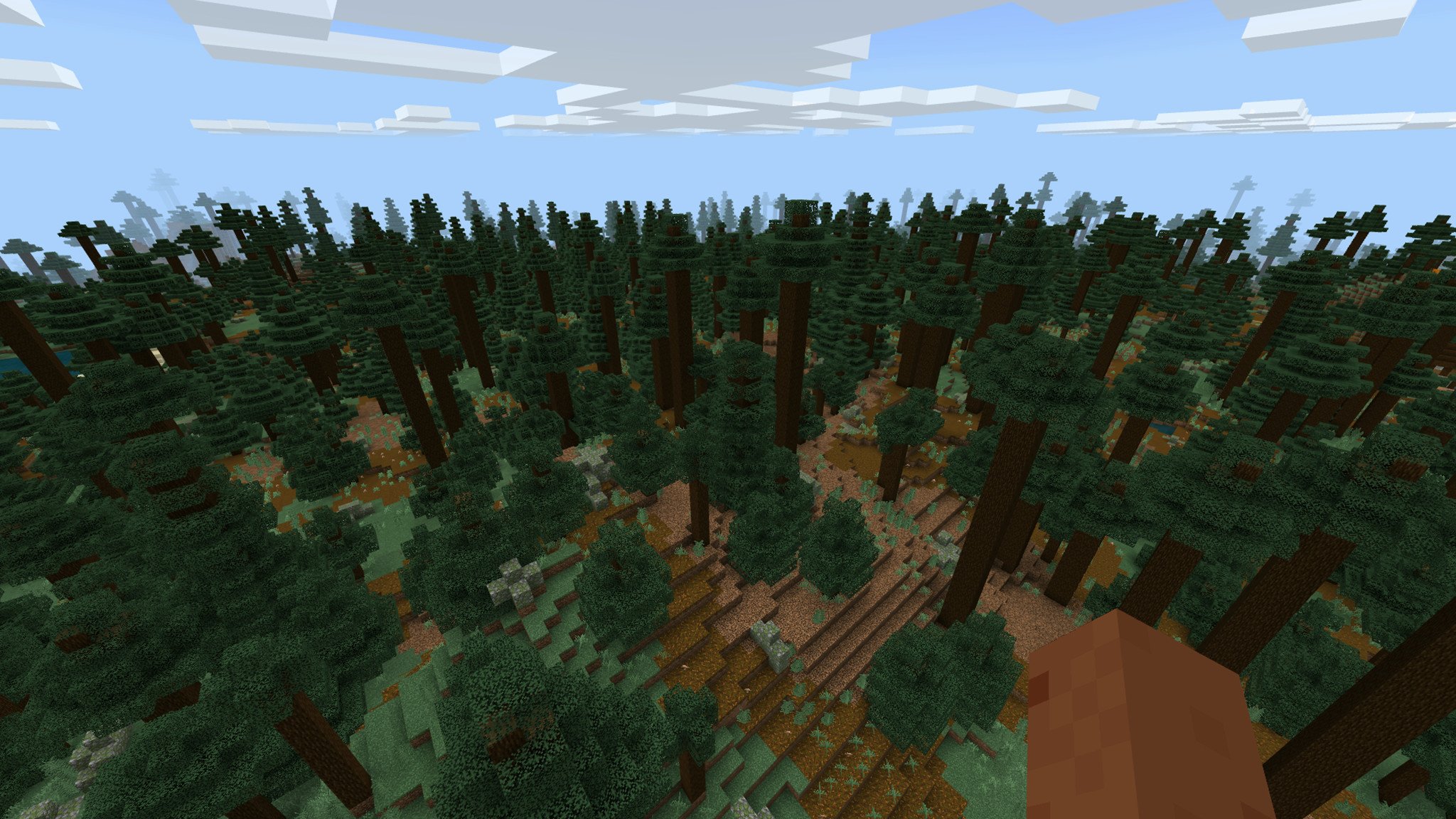
This is a rare variation of the taiga biome that makes it a cross between taiga, dark forest, and jungle biomes. In these biomes, the spruce trees are much larger and more compact. Beyond that, the landscape becomes dotted with patches of dead ferns and coarse soil, as well as large cobblestone boulders.
The idea is likely that the massive trees are sapping the life out of the forest by hogging all the sunlight and water. All I know is it looks awesome. Other than the differences above, giant tree taigas don't generate villages, making them less of a good choice than the normal taiga.
Snowy taiga
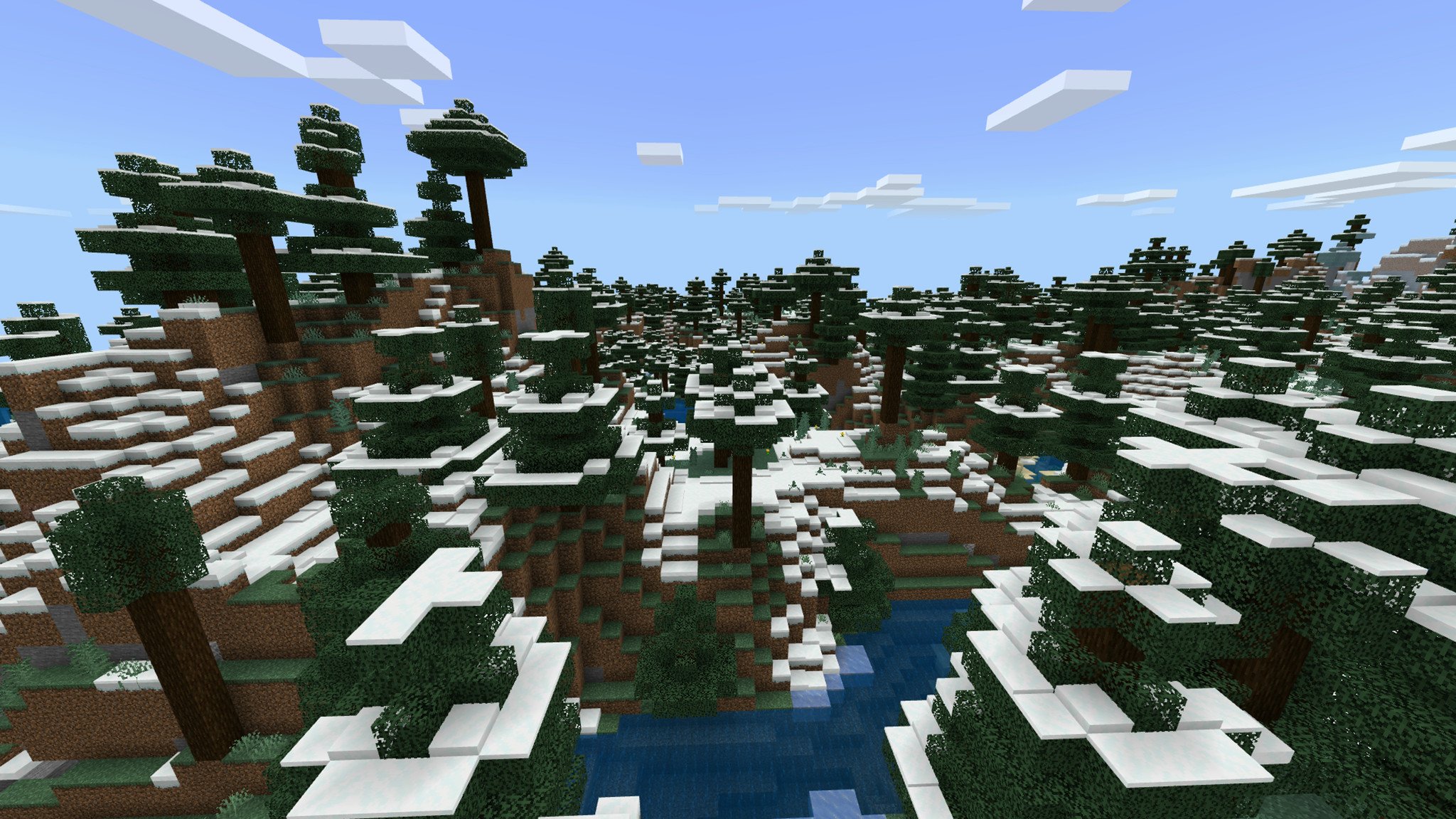
The snowy taiga biome is almost identical to a normal taiga, only with snow (spoilers) — a relatively flat biome and lots of spruce trees and other fauna like ferns or sweet berry bushes. Snowy taigas are also home to wolves and arctic foxes, making them a great place to search for pets.
Villages and pillager outposts can also generate in a snowy taiga, so they're not as desolate as some of the other snowy biomes. A solid place to start if you enjoy the cold, as caves and ravines can generate in snowy taigas.
Taiga mountains
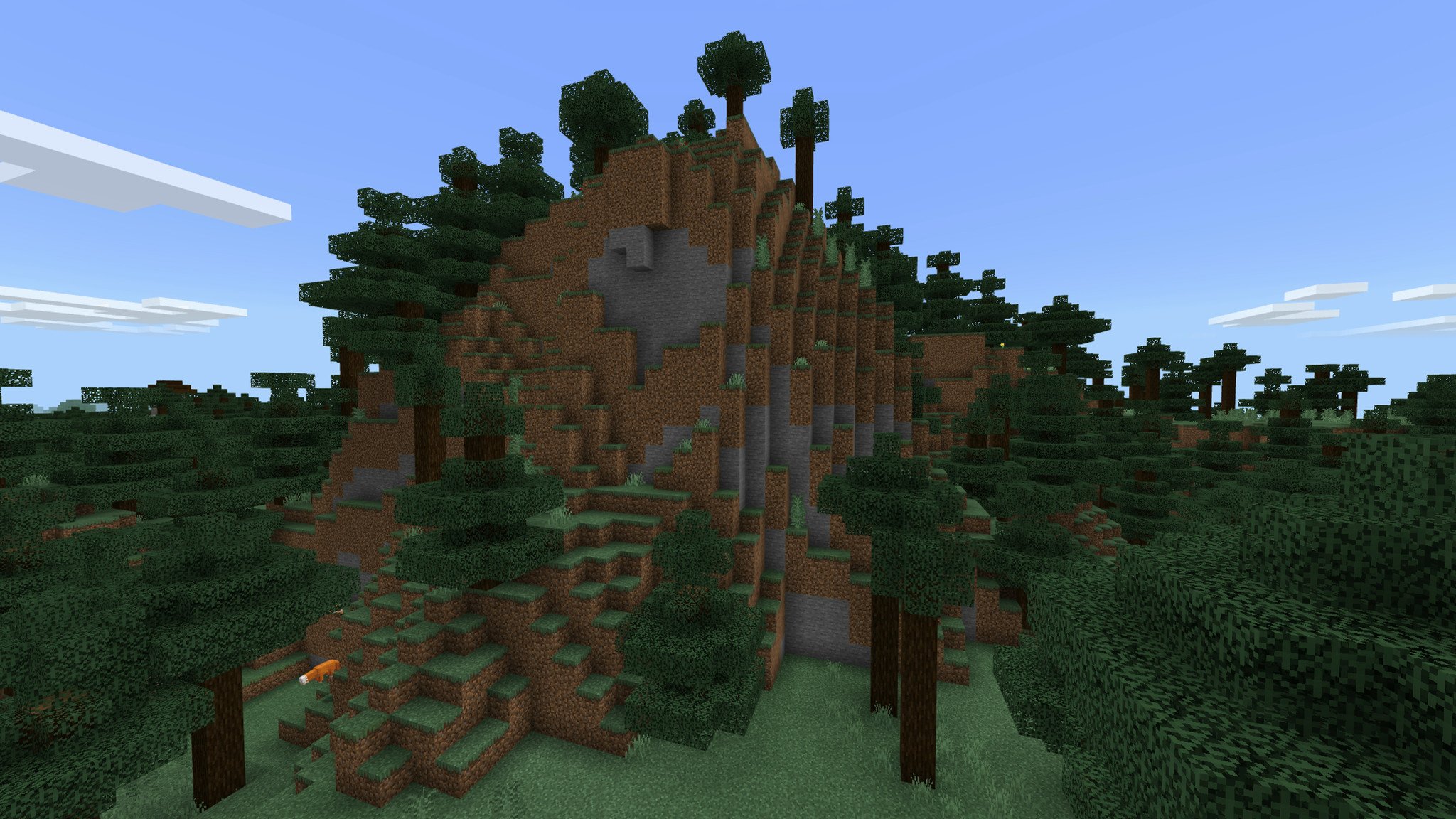
The taiga mountains take a lot of the good things of a normal taiga like consistent village generation and throws them out the window. Then it gives them a hostile environment with difficult-to-scale cliffs and deep valleys.
Unlike the normal taiga biome, it's more difficult to recommend this biome for those just starting out or looking for a new place to live. Hey, at least it's not snowy and icy, right?
Snowy taiga mountains
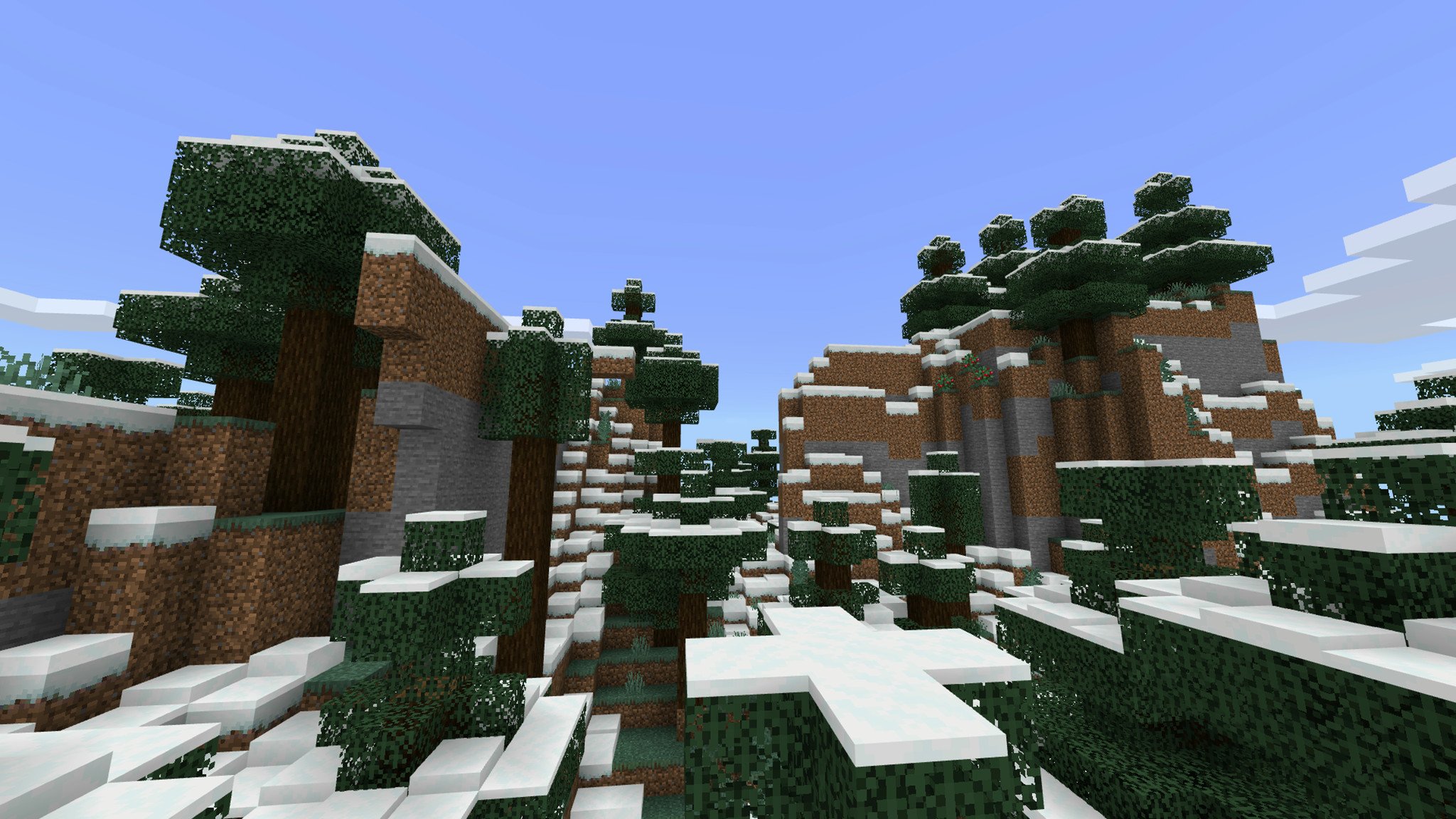
This alteration of the snowy taiga biome is more uncommon, and also far more dangerous. As the name implies, the snowy taiga mountains trades the flat horizon of a regular taiga for erratic and chaotic mountains.
While snowy taiga mountains share the same wildlife and plant-life characteristics of their more demure cousins, villagers and pillagers avoid these biomes, making them a little less appealing.
Snowy tundra
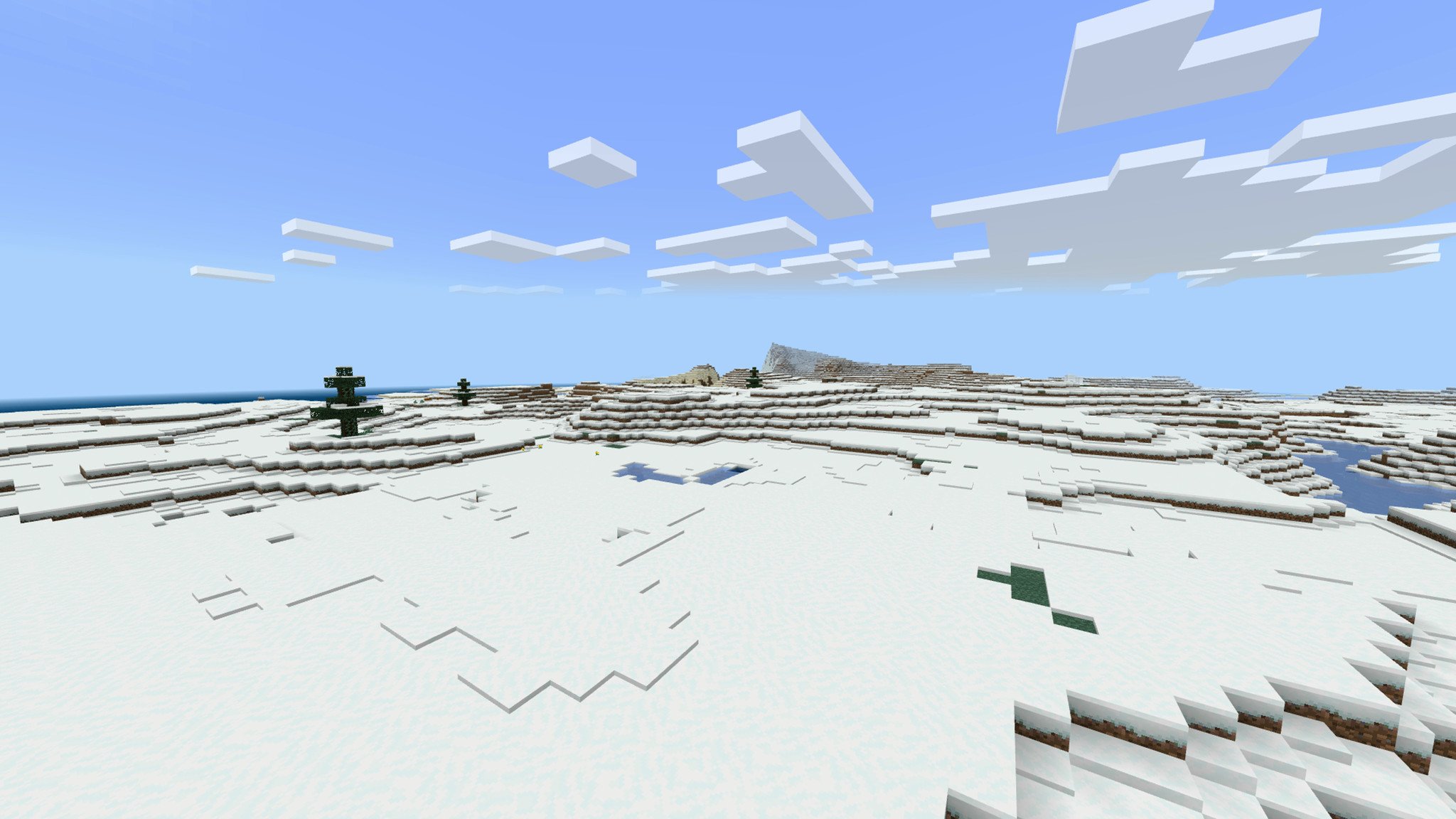
The snowy tundra is a massive expanse of snow, and a few trees and scarce wildlife spread sparingly throughout. Think of the plains, but with even less going on. You might find some rabbits or a couple of polar bears, but otherwise, the snowy tundra is relatively empty.
This is one of the biomes that freeze water, and it also snows rather than rain. Villages can generate in a snowy tundra, as well as the occasional pillager stronghold. They're hardly the most exciting biomes, and can be a challenge if you decide to start here. Starting resources are slim.
Ice spikes
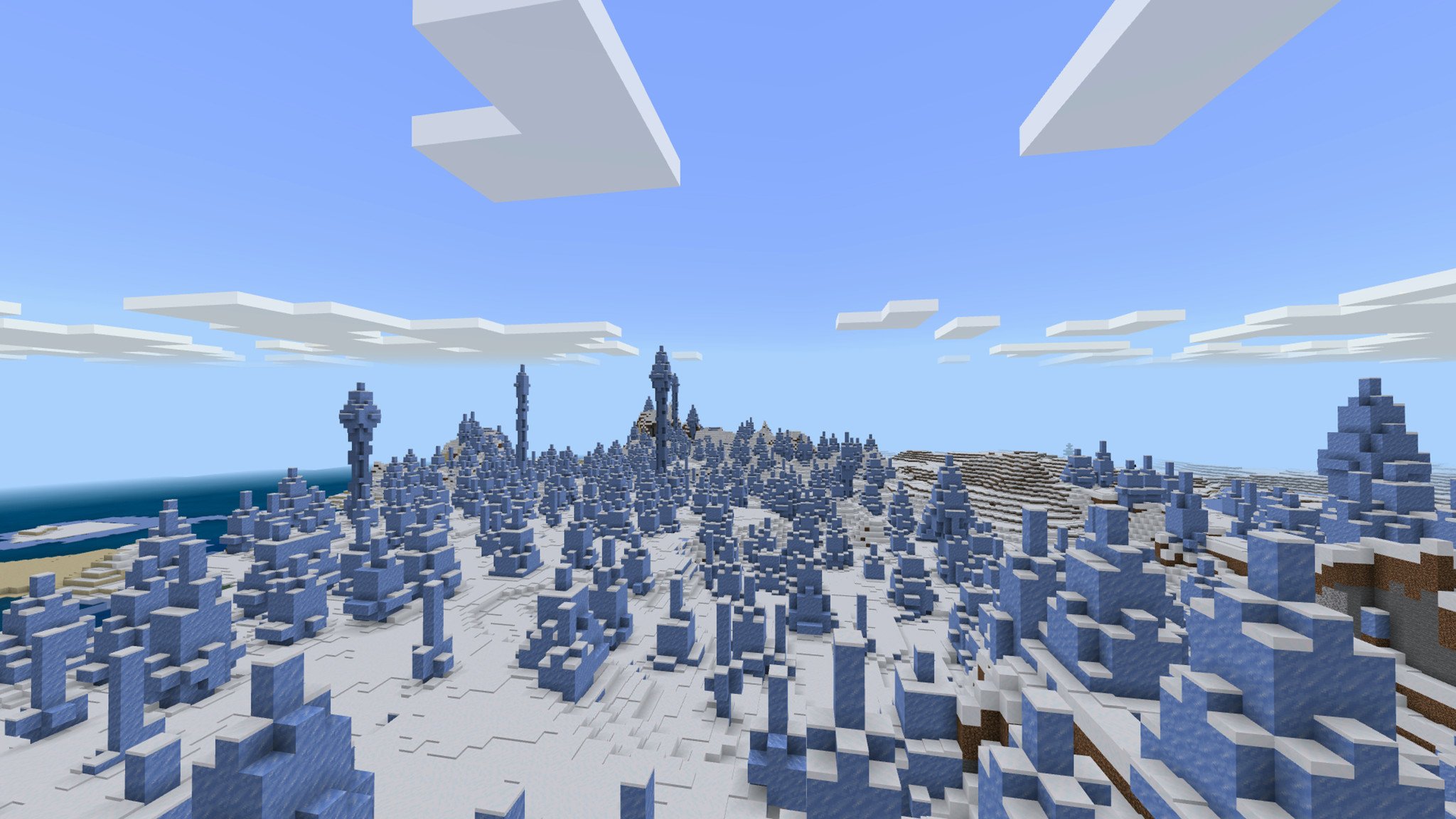
Ice spikes are a rather rare biome, and it's easily one of the most exciting biomes to come across in your travels. Massive towers of solidly packed ice poke into the sky and break the landscape, leaving only a treacherous environment to traverse, if you dare.
This biome is even sparser than the snowy tundra, featuring even fewer resources and wildlife, other than some rabbits or a polar bear. Ice spikes are fantastic to look at, and could make for a seriously wicked fortress, but you definitely don't want it to be the only biome for miles around.
Swamp
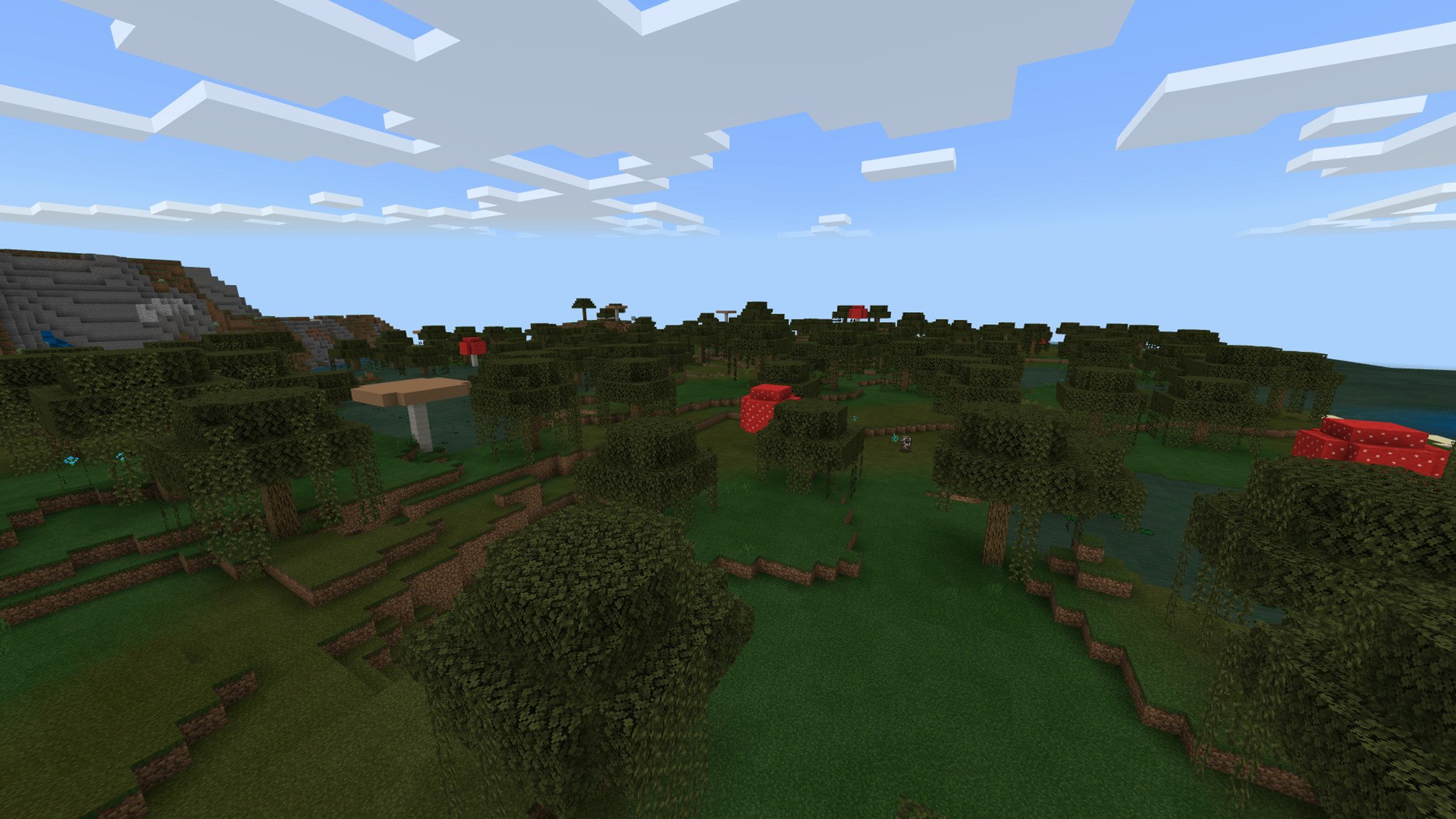
Swamps quickly join the ranks of most dangerous Minecraft biomes, mostly because of how its various traits come together at night. These wet biomes are characterized by spotty dry land interspersed with green-blue water, an abundance of vines, lily pads, mushrooms, and a lot of clay.
Swamps are dangerous because of their dreary overcast, the ease at which zombies can get trapped underwater and become drowned, and the fact that slime commonly spawns naturally in swamps at night. More than that, swamps are the only biome in which witch huts can generate.
Savannah
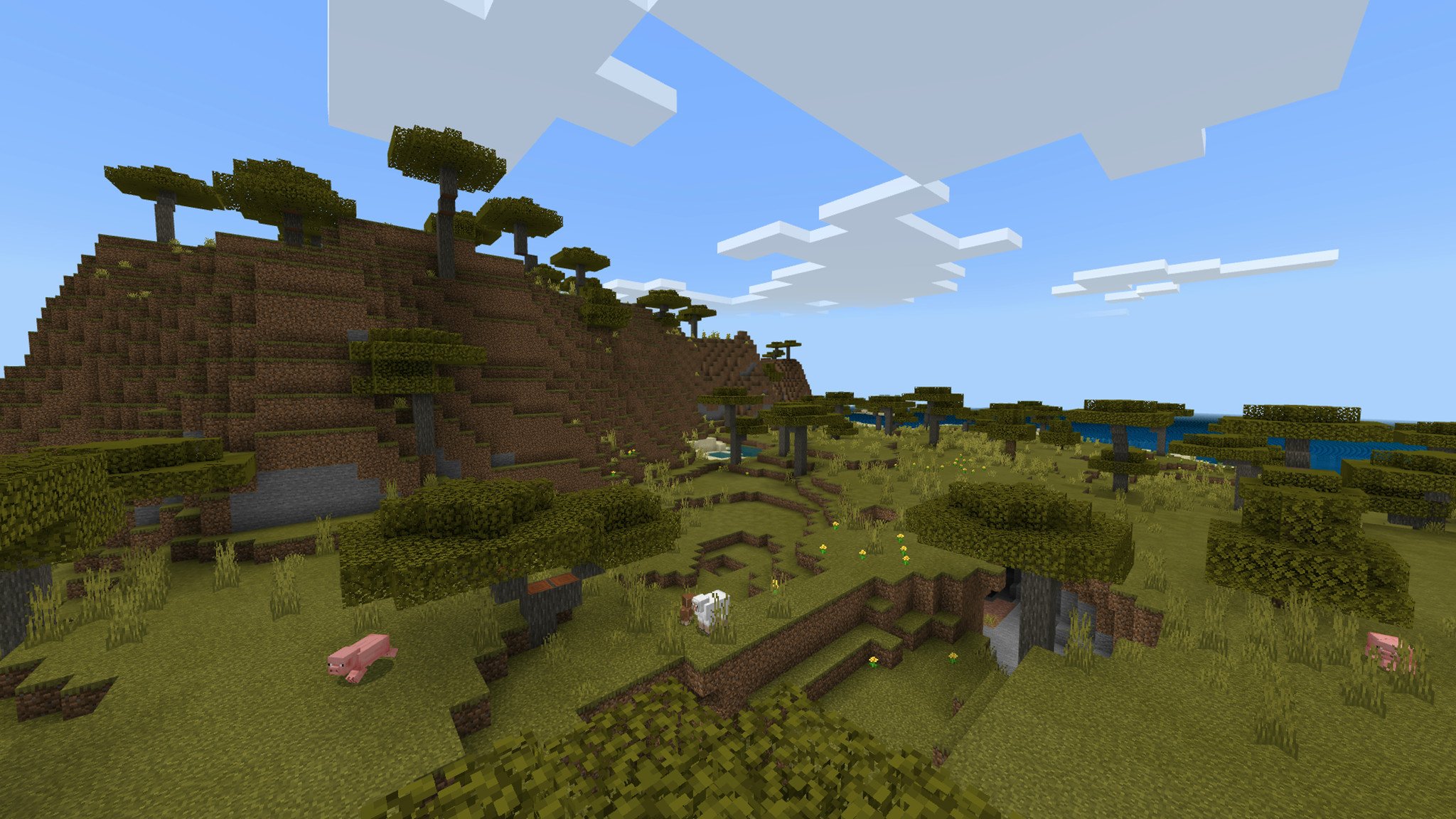
The savannah is a biome that manages to combine the features of two other biomes but still retains its own identity. Expansive fields dotted with red-tinted acacia trees and adorned with herds of horses and llamas means the savannah has just enough unique characteristics to make it enjoyable to explore.
Villages constructed of acacia wood and pillager outposts can generate in these biomes too, so they're a solid biome to start out in due to their well-rounded roster of resources and structures until you shatter one.
Shattered savannah
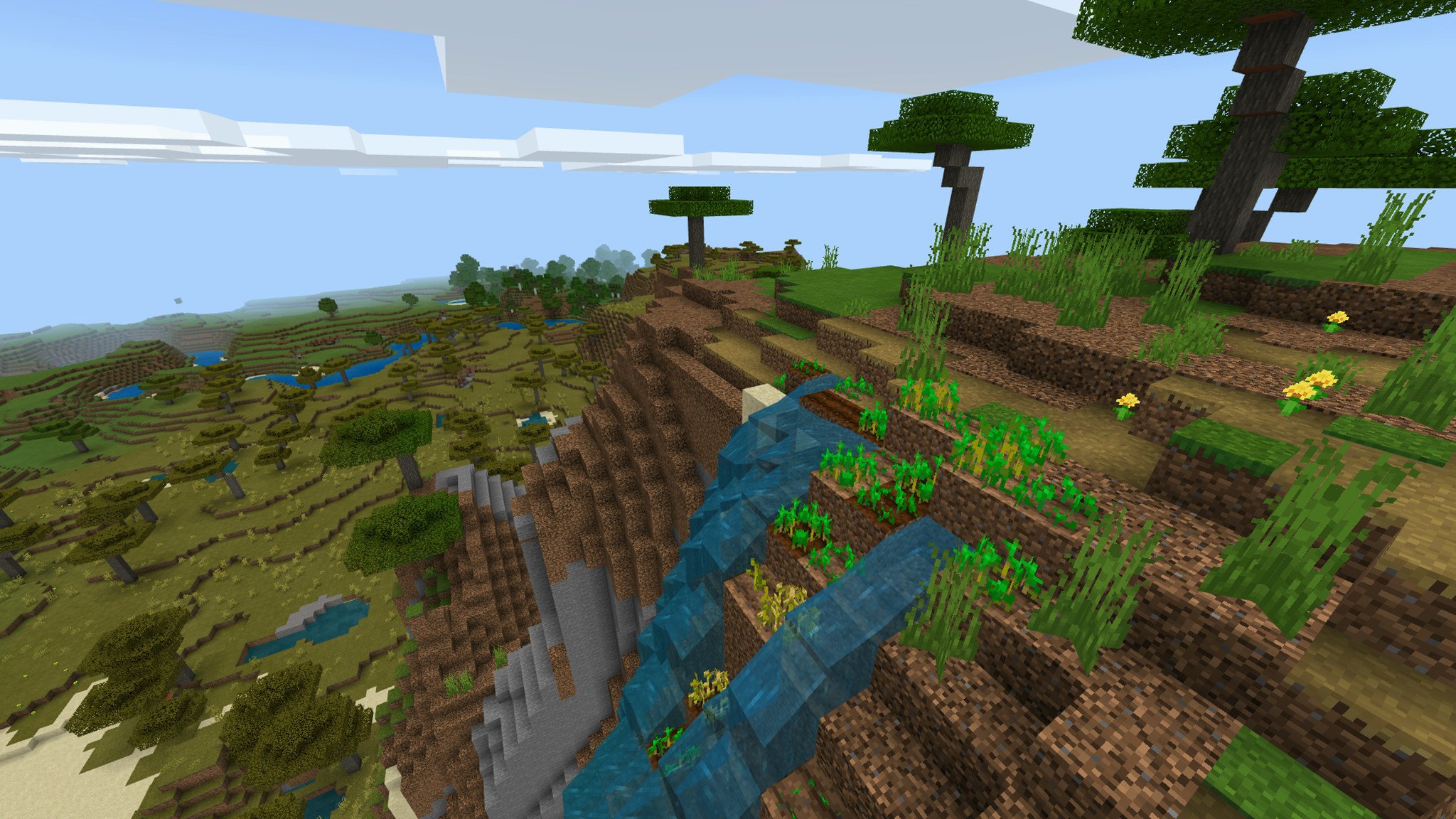
While a normal savannah is pretty accommodating to the needs of a Minecraft player, the shattered savannah is acutely against anything you'll try and do here. A shattered savannah is immediately recognizable by the craggy and aggressive mountains that make it seem like the world exploded just a little bit. Right here.
The mountains in a shattered savannah are some of the tallest and steepest in the game, sometimes even reaching the limits of the sky. This makes them basically impossible to climb up. Not that you'd want to anyway. Other traits include vast, deep lakes, waterfalls of lava and water, and a wild collection of entirely random drops, divets, and craters. Llamas still manage to live here. Don't be a llama.
Badlands
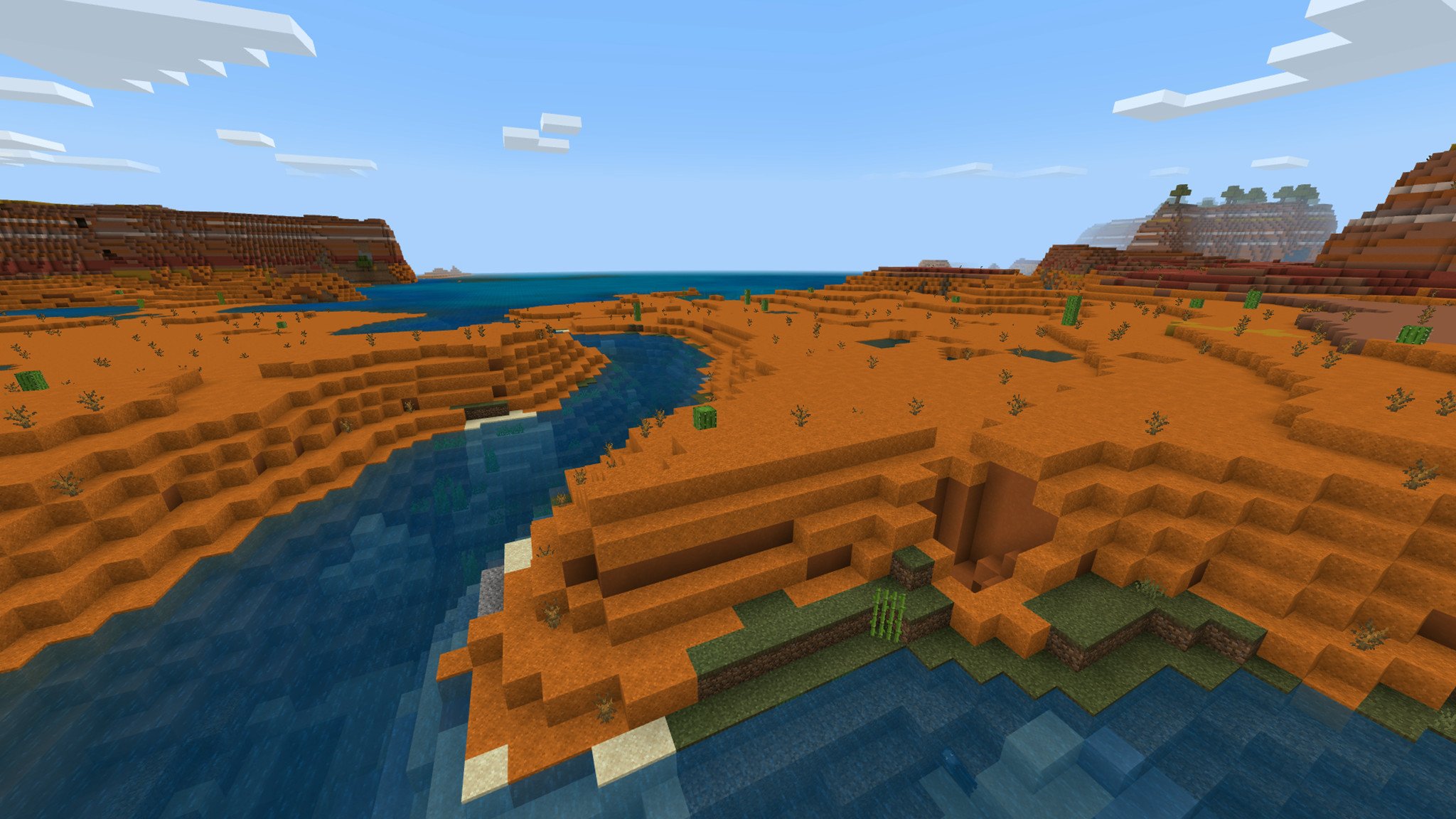
If you think of an Old West film, you'll probably envision abandoned mines, vast veins of gold, and far too much sand that's far too red. That's the badlands in a nutshell. This biome is a close cousin of the desert but is far more rare and hard to find.
Does anything live here? No. Does anything spawn here? Also no, unless you count monsters at night. Is there any reason to come here? Actually, yes. Badlands have a ton of terracotta, and gold is more common here. On top of that, you're more likely to find an abandoned mineshaft jutting out of the ground.
Eroded badlands
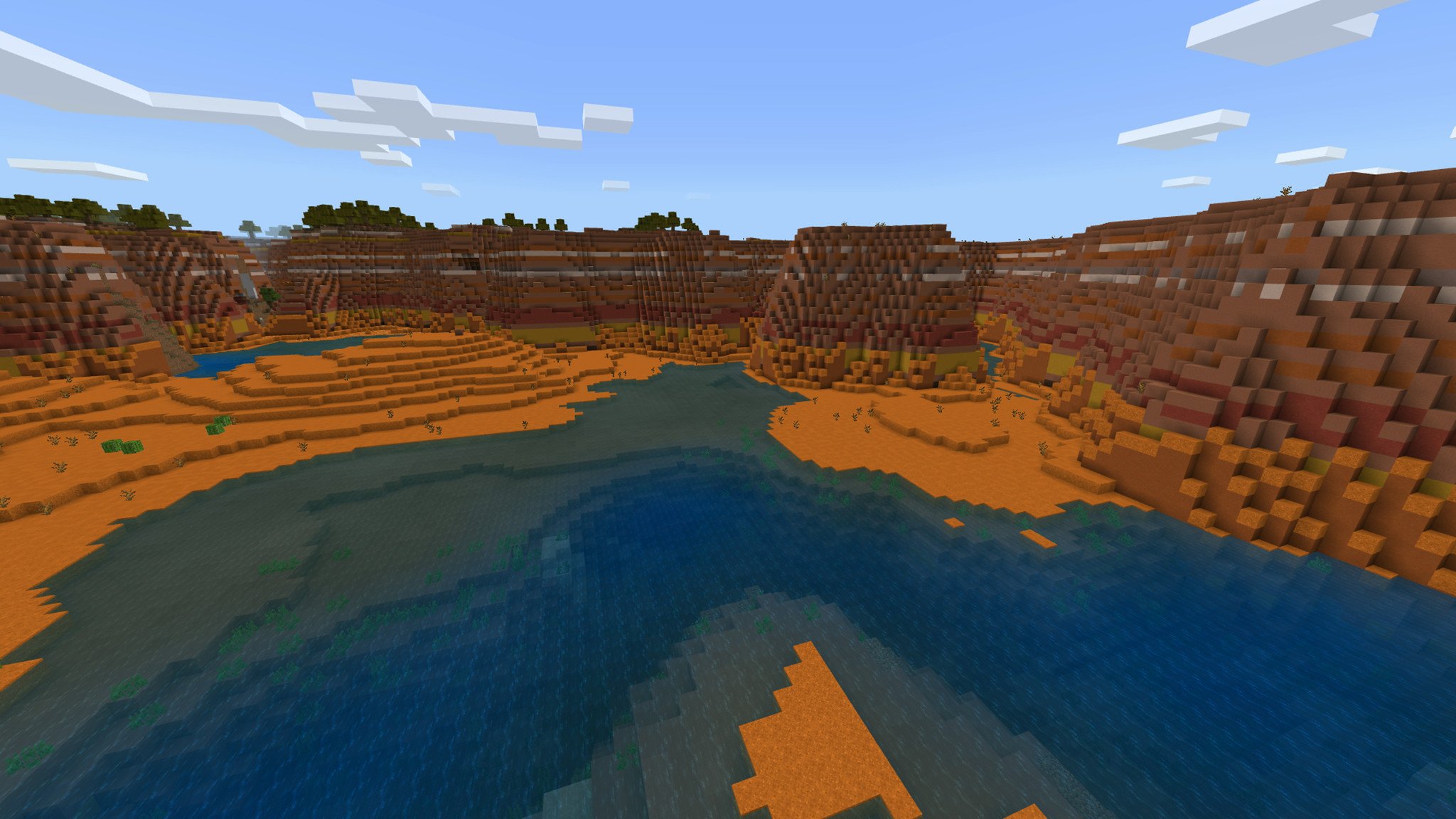
An even rarer variation of the already elusive badlands, this biome is one of the most striking in the game. Canyons wind through these badlands, carving their way through colorful layers of terracotta to create some beautiful scenery.
Otherwise, this biome is pretty similar to the normal badlands, besides one significant difference. While the badlands often generate next to a desert, the eroded badlands never will. They're on their own.
Wooded badlands
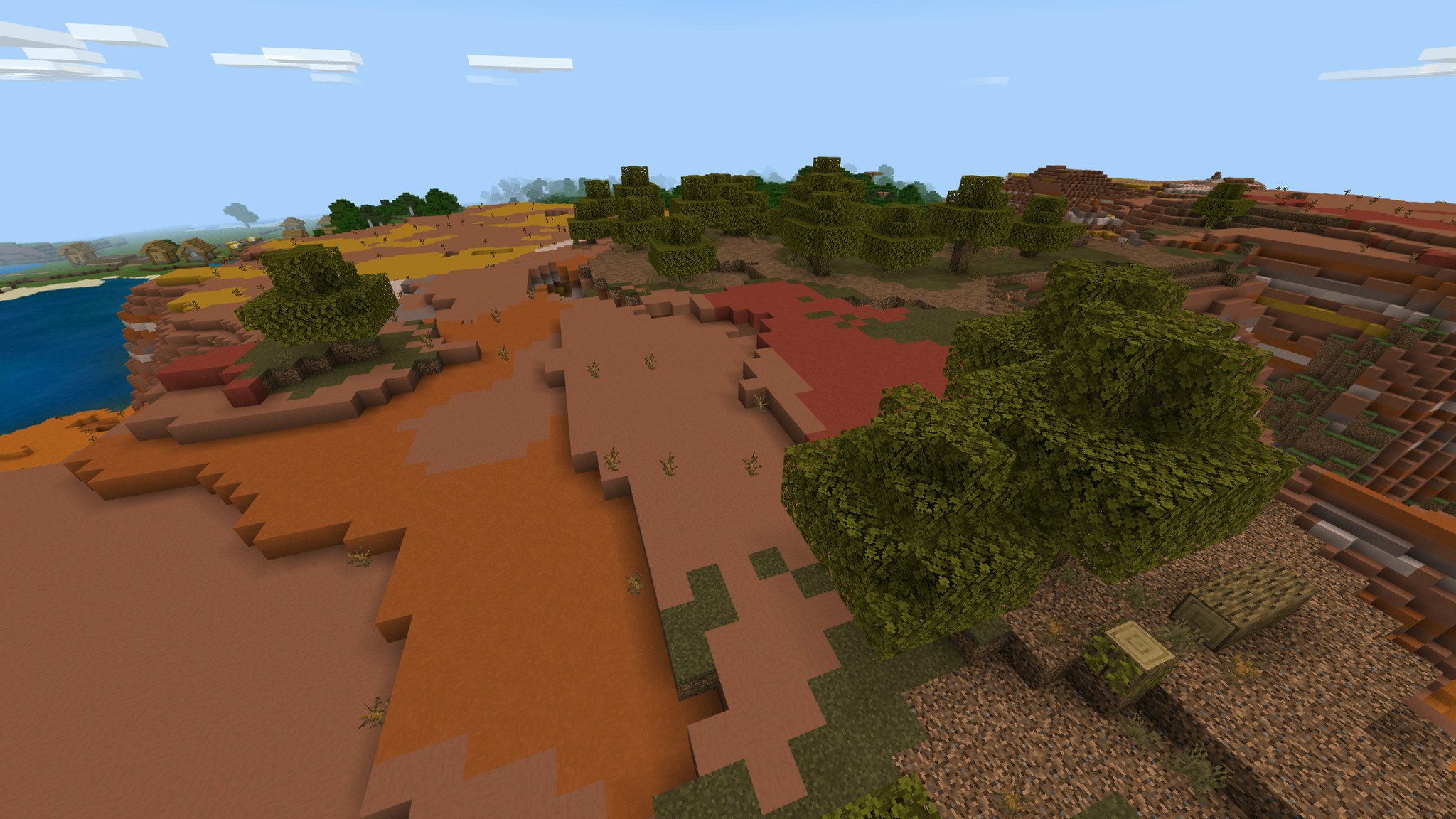
A miniature biome inside of a lot of badlands biome is the wooded badlands. These biomes replace a lot of red sand with coarse dirt, and can actually grow hardy oak trees in small numbers. Useful to find if you're planning on living inside of the badlands, but not too unusual otherwise.
Beach
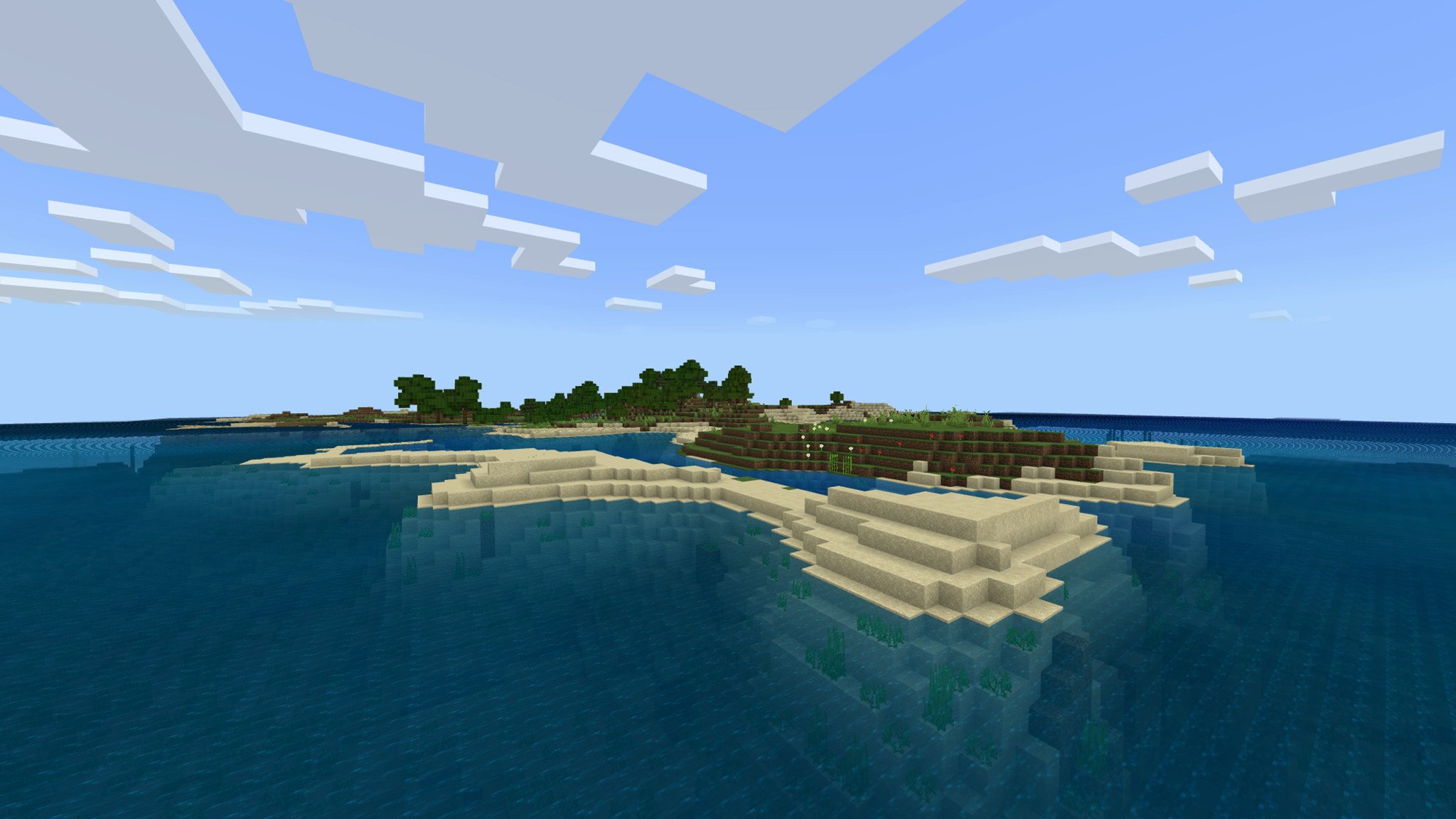
Beaches are constructed any time an ocean meets any other kind of biome. Beaches are usually just sand, and don't feature much in the way of things to do. You can find sugar can, shipwrecks, buried treasure, and turtles here.
If you're really interested, beaches can also be an excellent place to do some fishing. It's worth keeping an eye out for them, but beaches are pretty common.
Stone shore
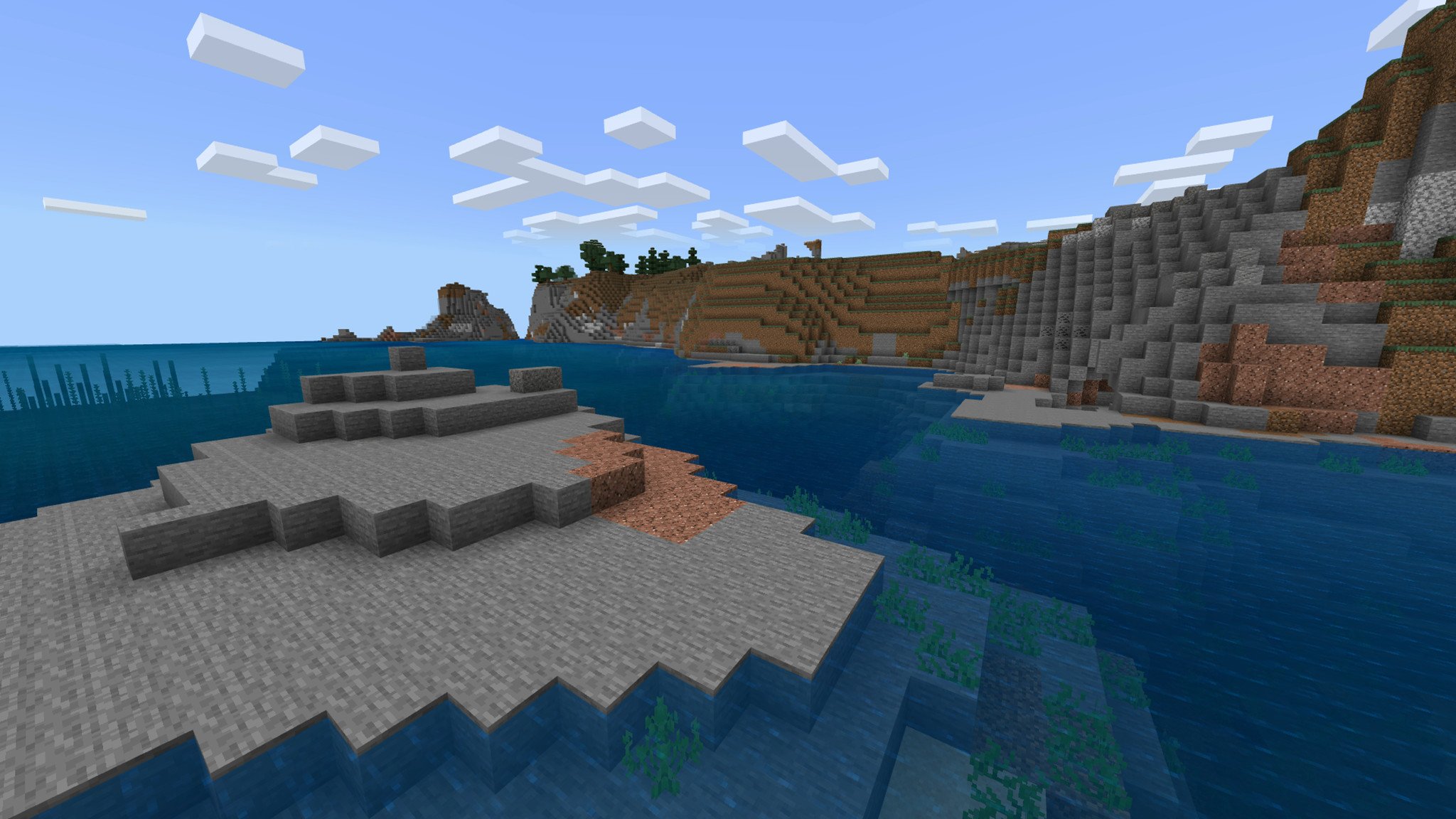
These stone shores occur whenever a mountainous biome clashes with an ocean. These beaches are often unassailable cliffs that make any exit out of the water nearly impossible.
As these biomes are usually tiny, they're not really a choice for starting out. Making your way into the nearby mountains or trying your luck on the water is a more logical choice. Might find some treasure if you're lucky, though.
Snowy beach
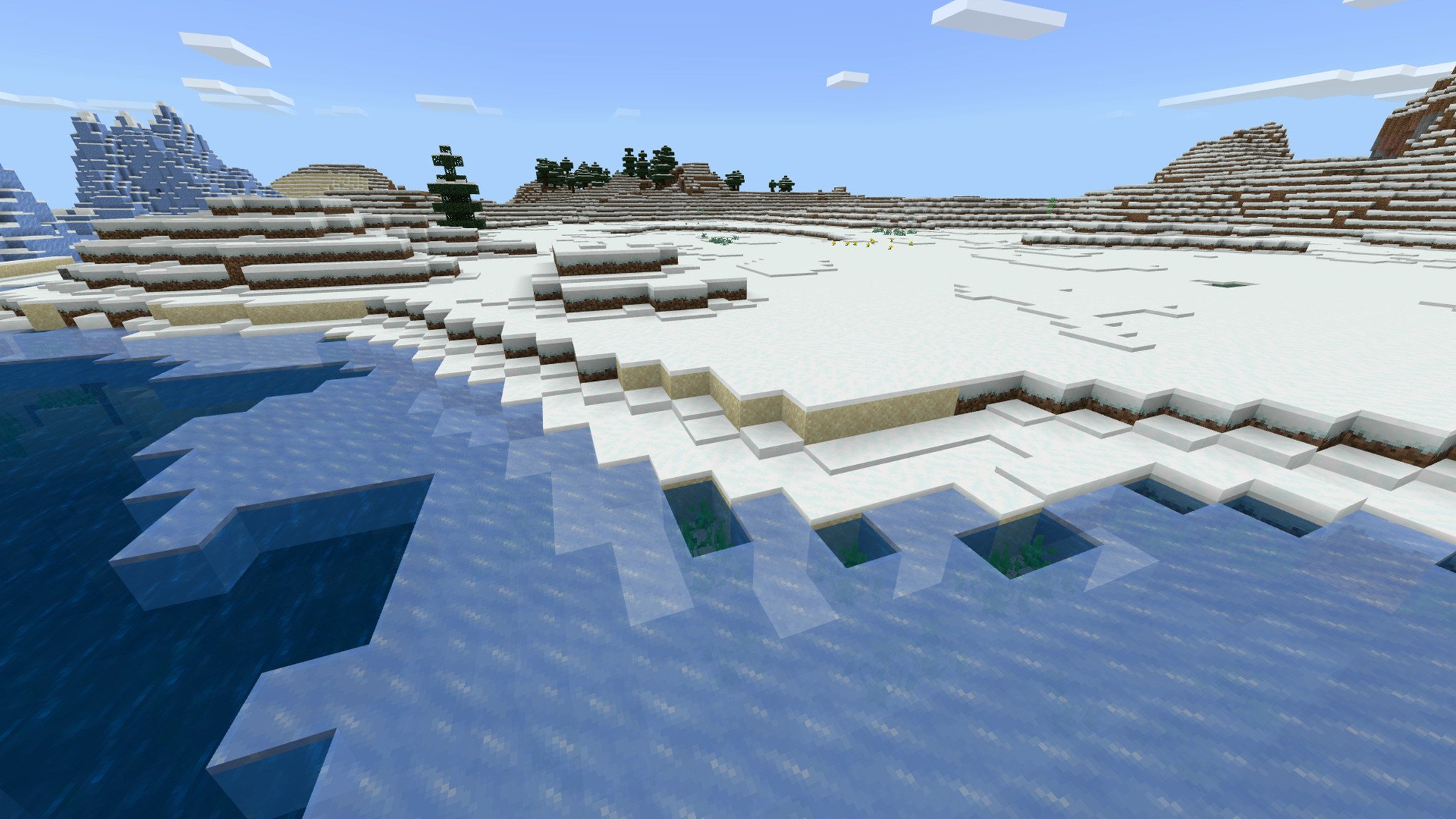
Snowy beaches are tiny biomes that generate whenever any snowy biome borders an ocean. These are characterized by their snow-blanked sandy shores. Not much happens at a snowy beach.
It is possible to find a shipwreck from the ocean stranded on the beach, however, so it may be worth a quick peek whenever you spot one.
River
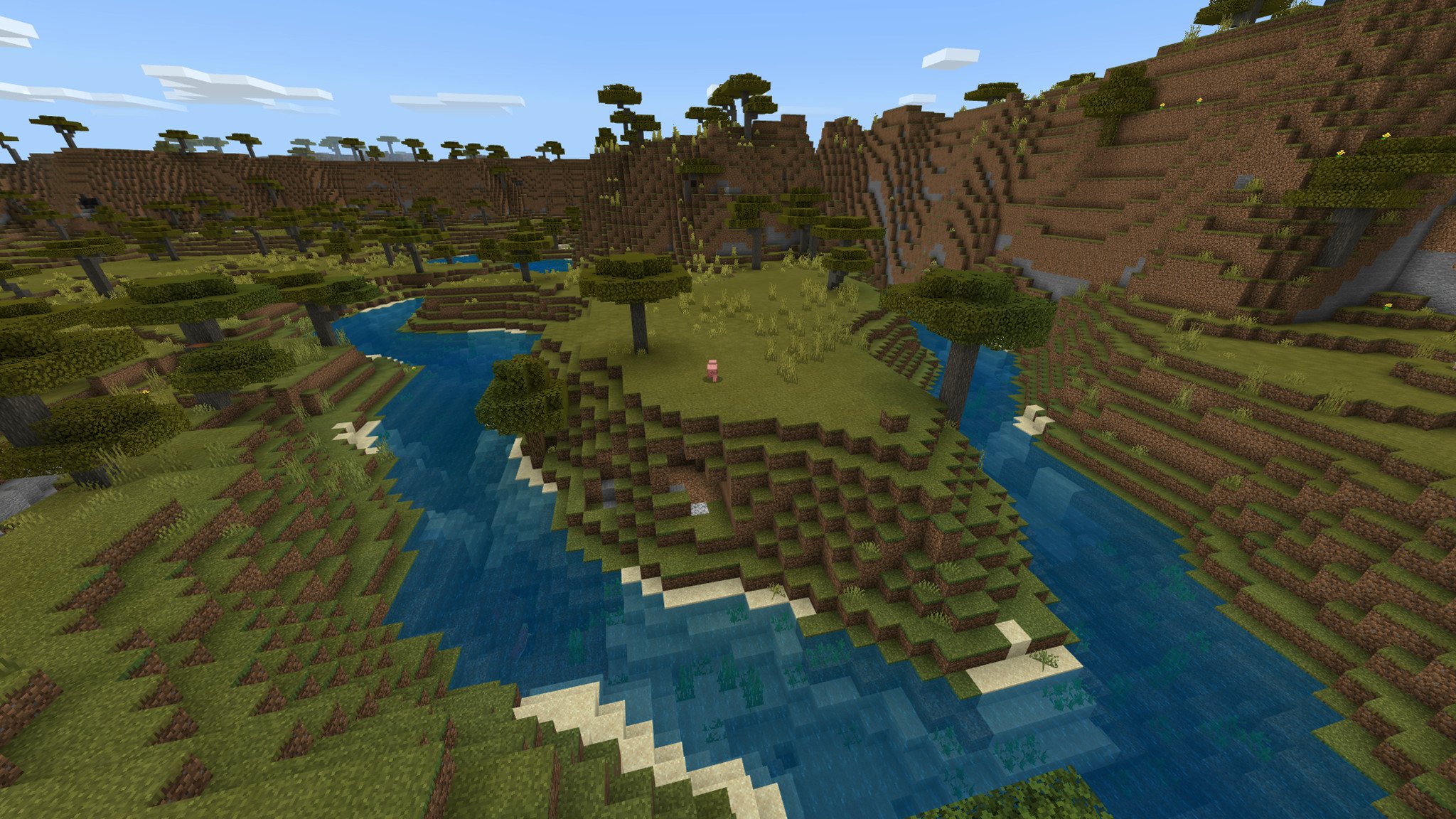
As difficult as it may be to believe, the river biome describes an area of land that prominently features a, you guessed it, a river. River biomes cut through basically any biome and have sugar cane, sand, clay, squid, salmon, and drowned within them.
Usually, rivers try to connect to the nearest ocean. They're not always successful, and sometimes just loop back into the same ocean they originated from, but rivers do try their darndest.
Frozen river
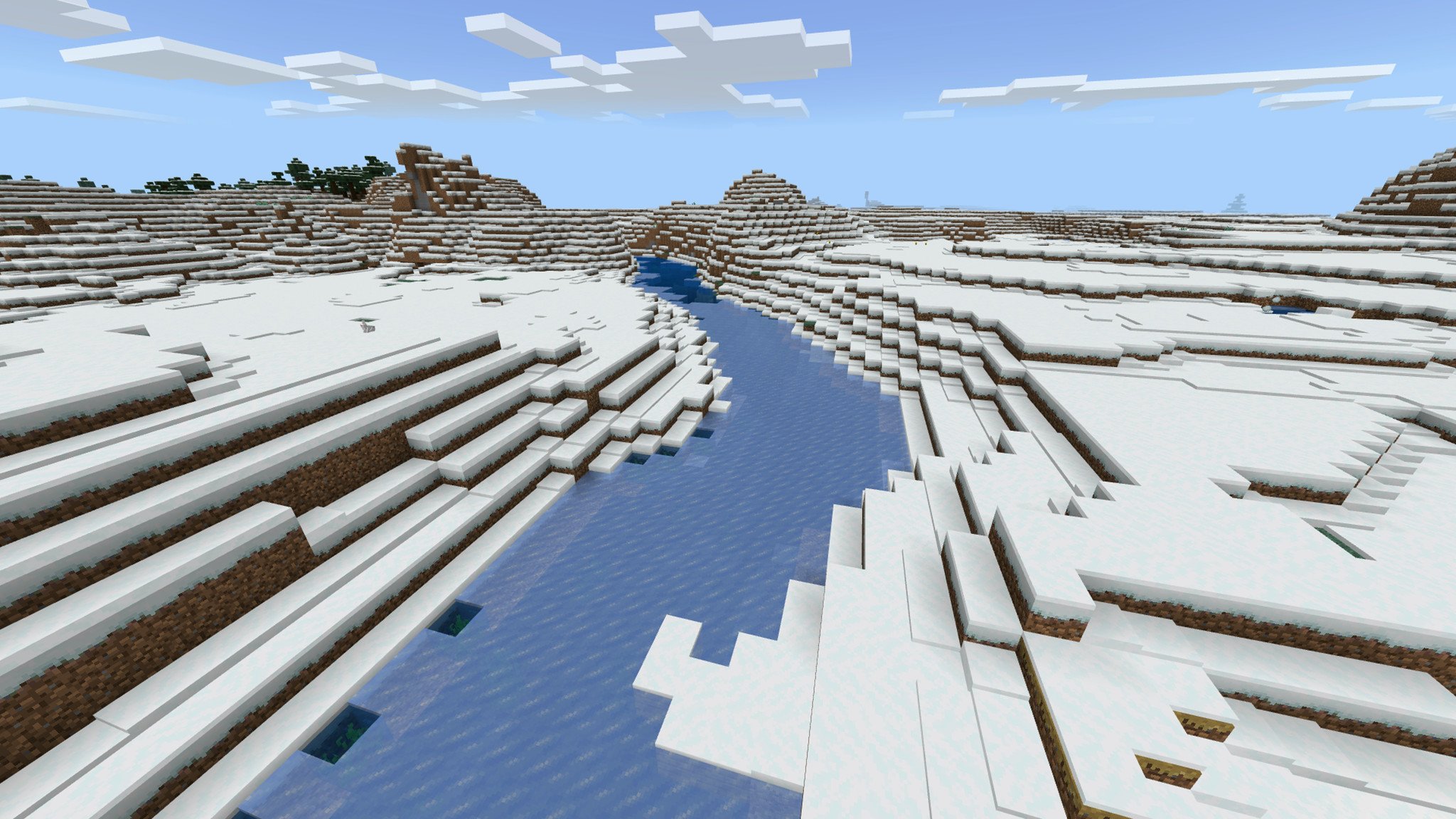
The frozen river is another case of a decidedly obvious name. These occur whenever a normal river meanders into a snowy tundra biome, which causes the surface water to freeze. They are home to the same wildlife as a snowy tundra, but with salmon and drowned spawning underwater.
One advantage of a frozen river is the reduced threat of hostile mobs. Other than the drowned, no other monsters will bother you on a frozen river. Not exactly a great biome to make your home, though.
Hills
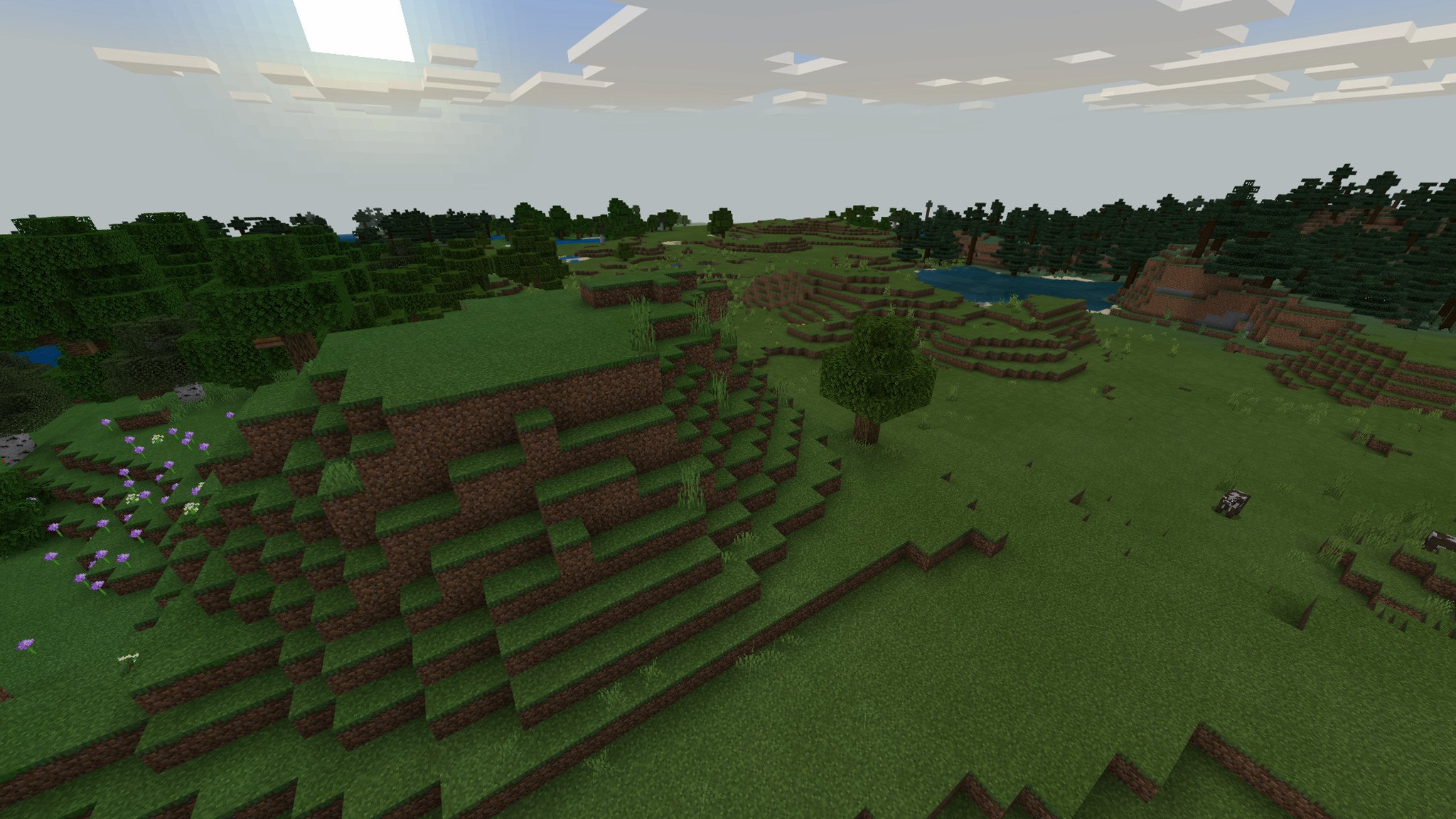
Hills aren't a biome in and of itself, but rather a variant of most of the biomes listed in this guide. They're worth a mention, but definitely aren't too terribly important in the grand scheme. Biomes that have a hill variant like forests, taigas, savannahs, and more just have a more elevated and rolling terrain than their regular counterparts. They're extra hilly. Figures.
Ocean
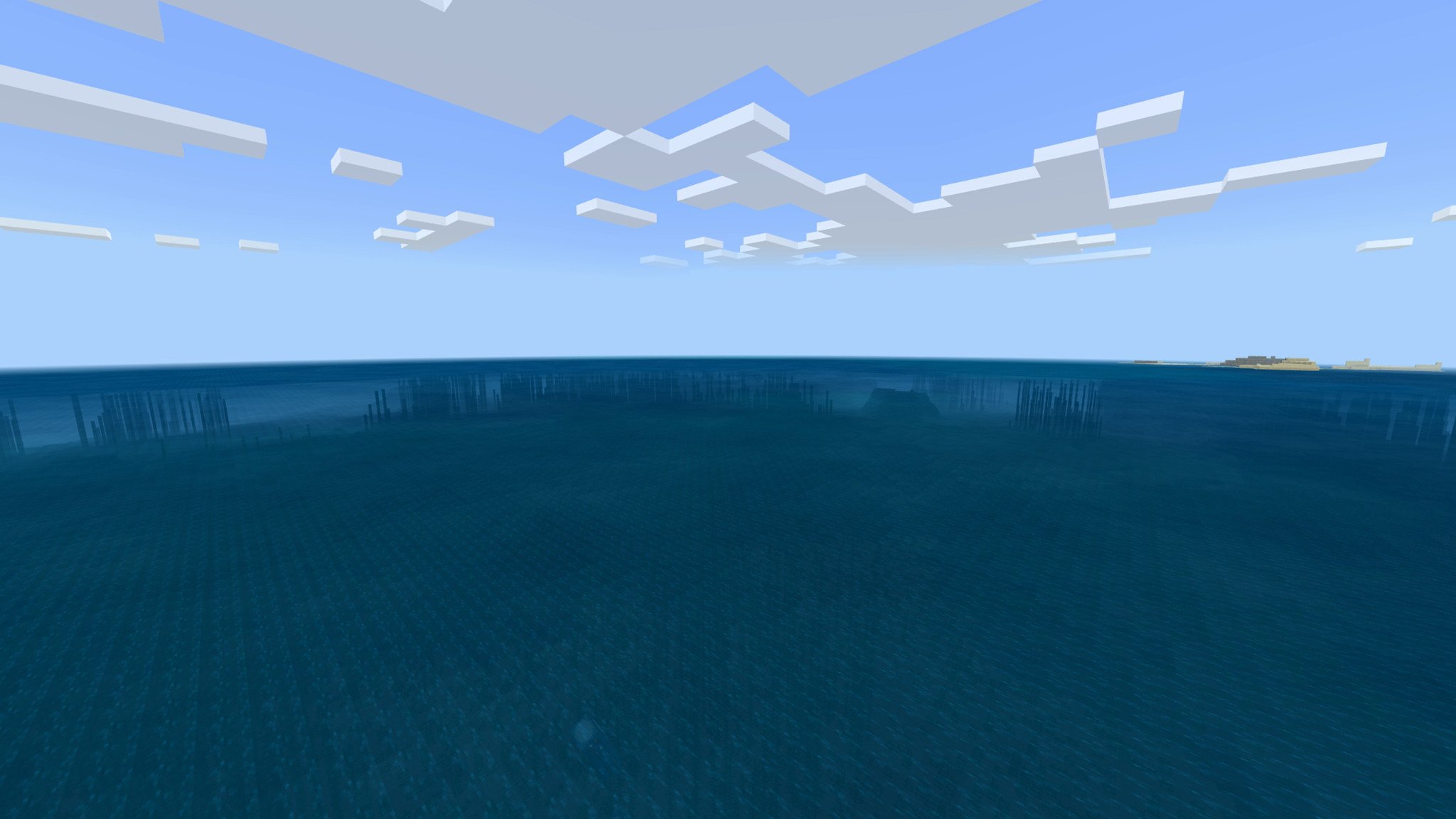
The ocean used to be the drabbest part of Minecraft by a considerable margin. There was nothing to do, nothing to see, and no reason to ever use the ocean for anything other than taking a boat from one piece of land to the next.
However, a major update to Minecraft drastically altered the oceans, leading to colorful and beautiful vistas and a bunch of exciting features and structures to explore. The basic ocean biome is deep blue, with seagrass, kelp, and fish being the defining features.
Warm ocean
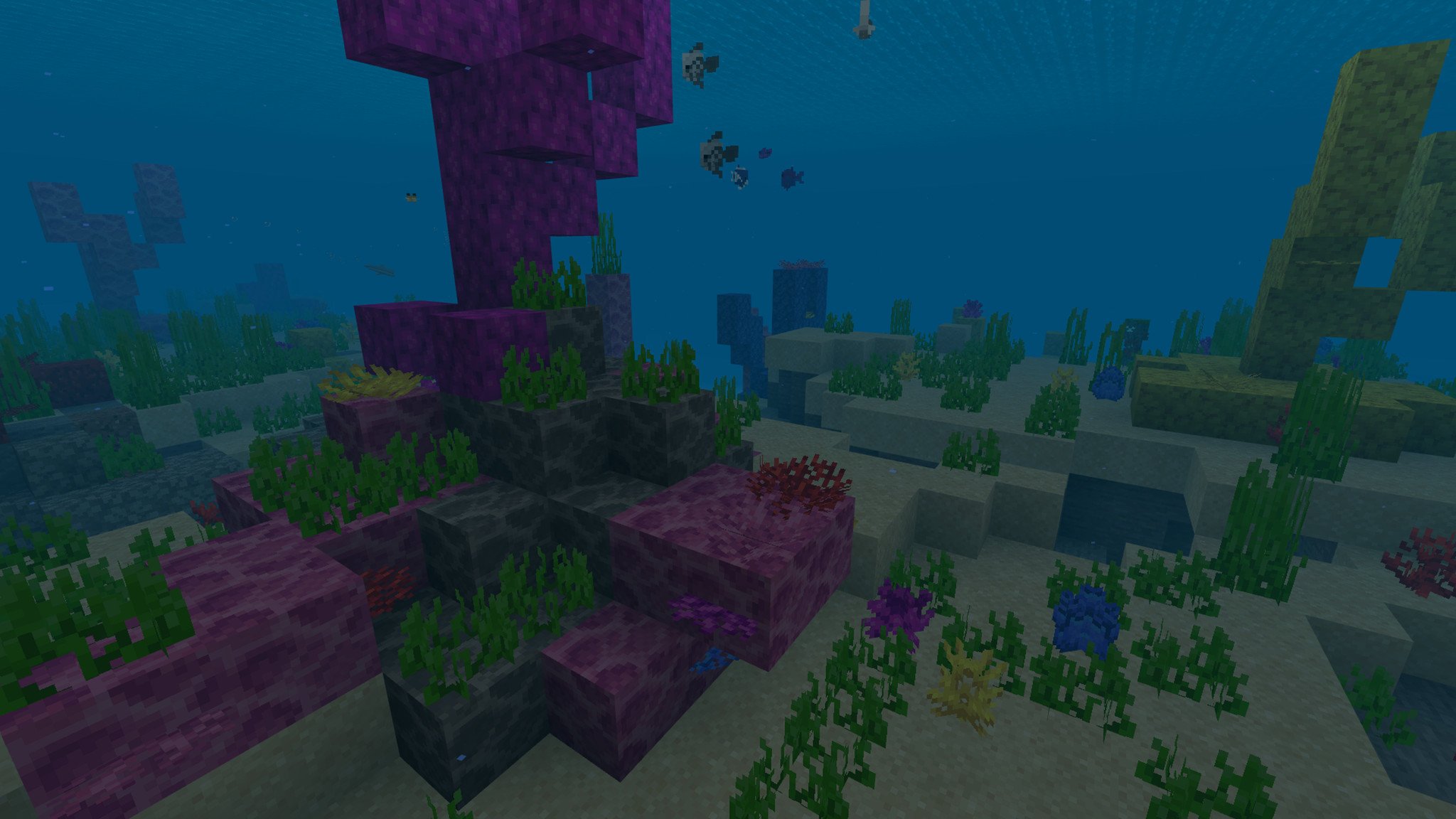
If any of the ocean biomes will immediately shock you with its vibrant appearance, it'll be the warm ocean biome. These biomes are the only biome in the game that can naturally generate coral reefs along their floors. You can also find a lot of aquatic wildlife here, including dolphins, pufferfish, tropical fish, and more.
These biomes are very exciting to discover and explore, but they're not deep enough to generate the more interesting ocean structures like temples. All you'll find here is the occasional shipwreck.
Lukewarm ocean
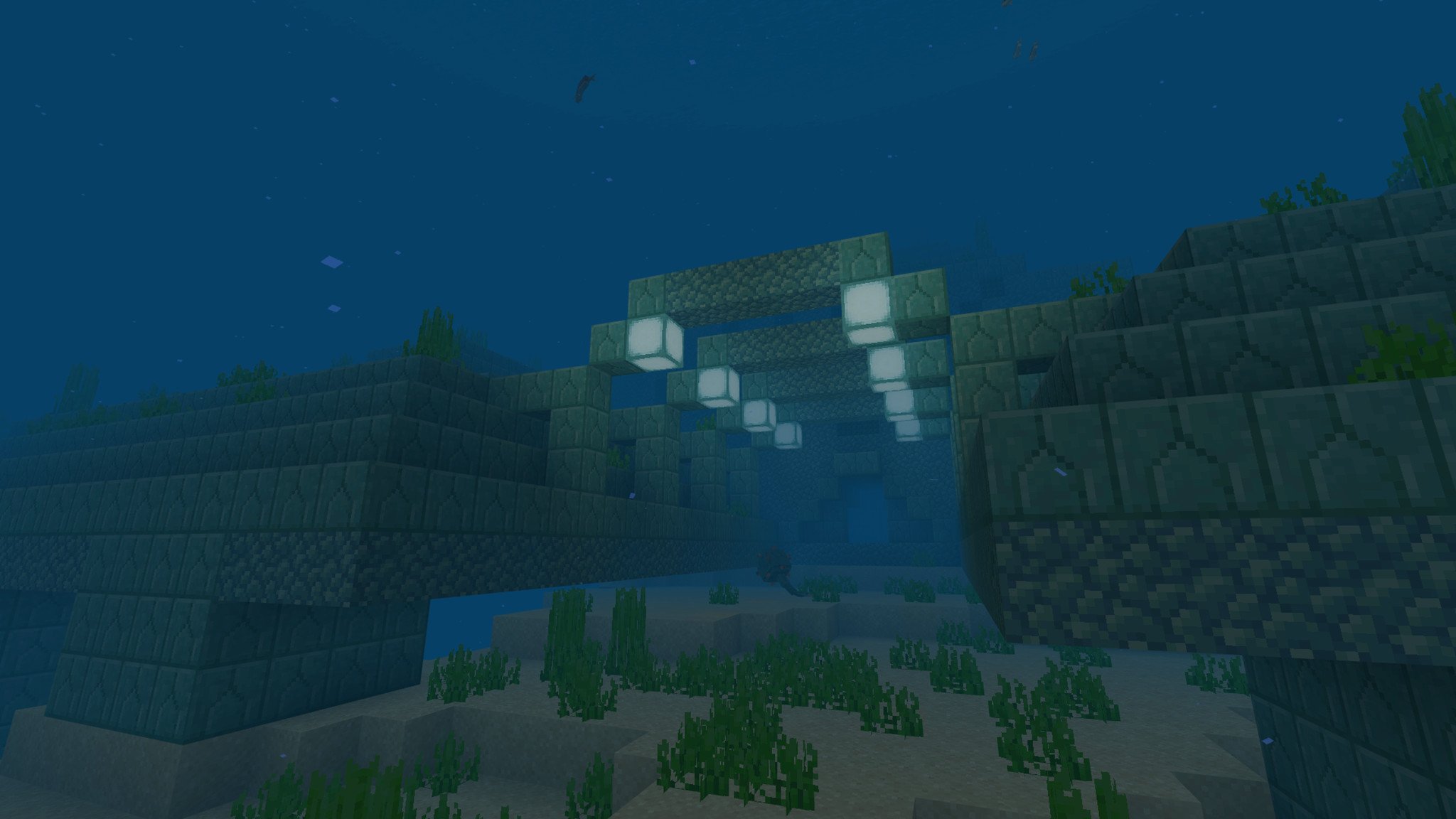
The lukewarm ocean forgoes coral reefs in exchange for more drab seagrass and kelp, but also gains cod, salmon, and the possibility for the ocean monuments. These temples are large structures protected by the mysterious guardians and are the headlining feature of the new oceans biome.
If you want to explore one of these monuments for yourself, you'll need to venture into deeper waters. You can also find drowned here.
Cold ocean
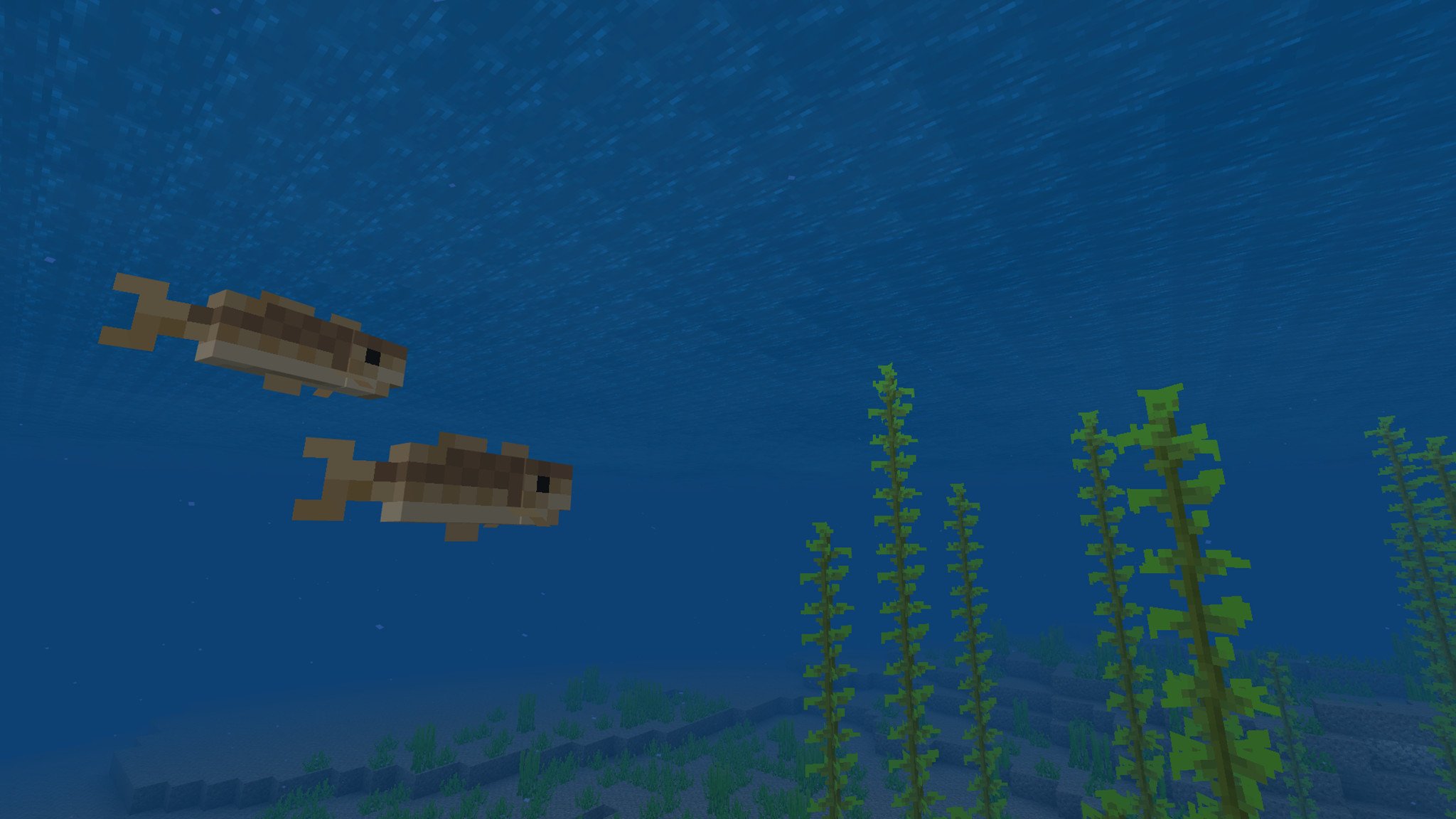
The cold ocean biome kills off just a little bit more life in comparison to previous ocean biomes but still has cod, salmon, and dolphins. These biomes have a deep blue hue to the water and can get just as deep as other ocean biomes.
This means you can also find ocean monuments here, as well as everything that protects them.
Frozen ocean
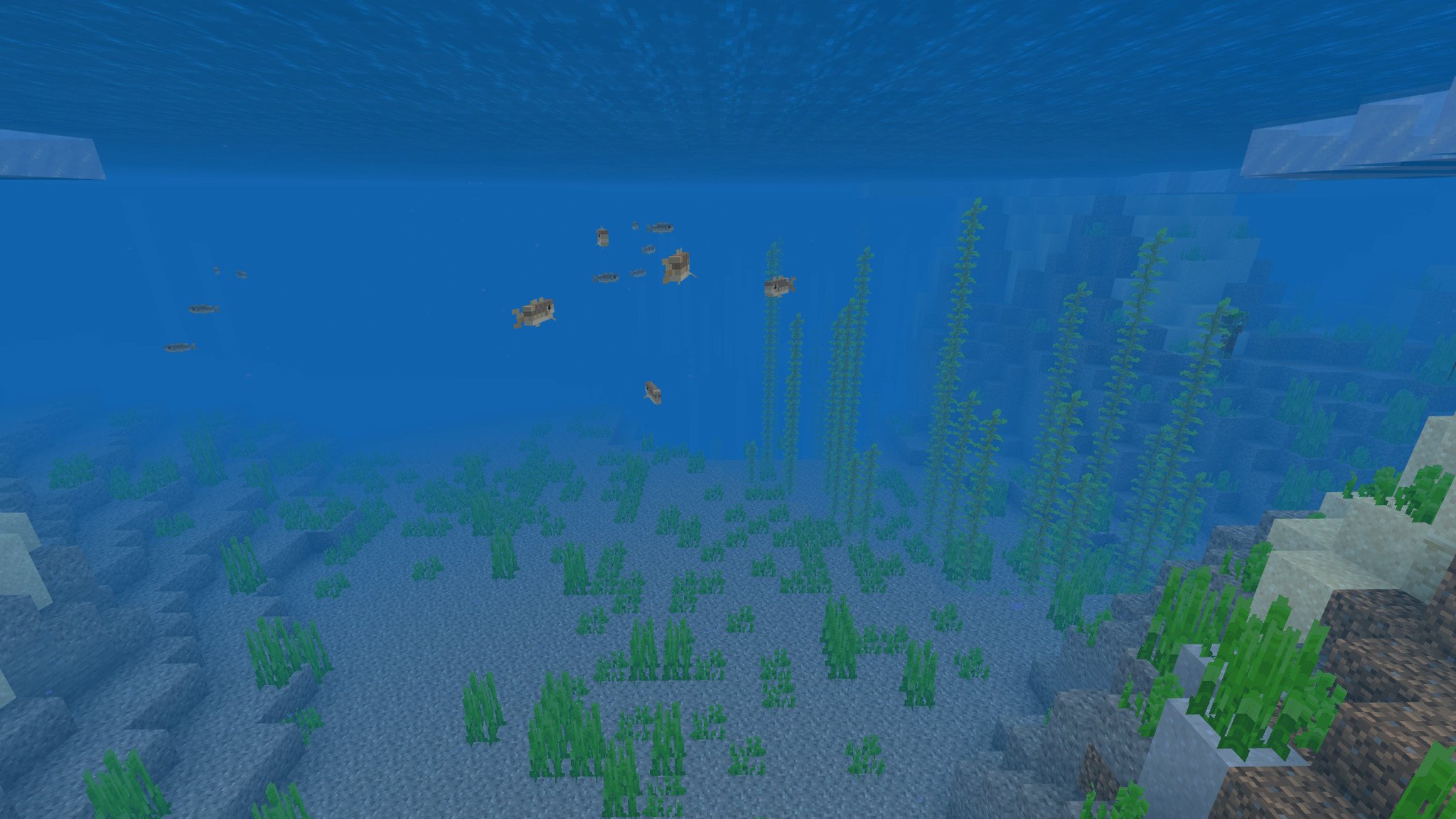
The frozen ocean is the most uninhabitable ocean biome, being lived in only by salmon and squid. Polar bears can also acclimate to the frozen packed ice that frequently covers the surface of these biomes.
At their deepest, frozen oceans can still spawn ocean monuments, but you better dress warmly to handle them.
Mushroom fields
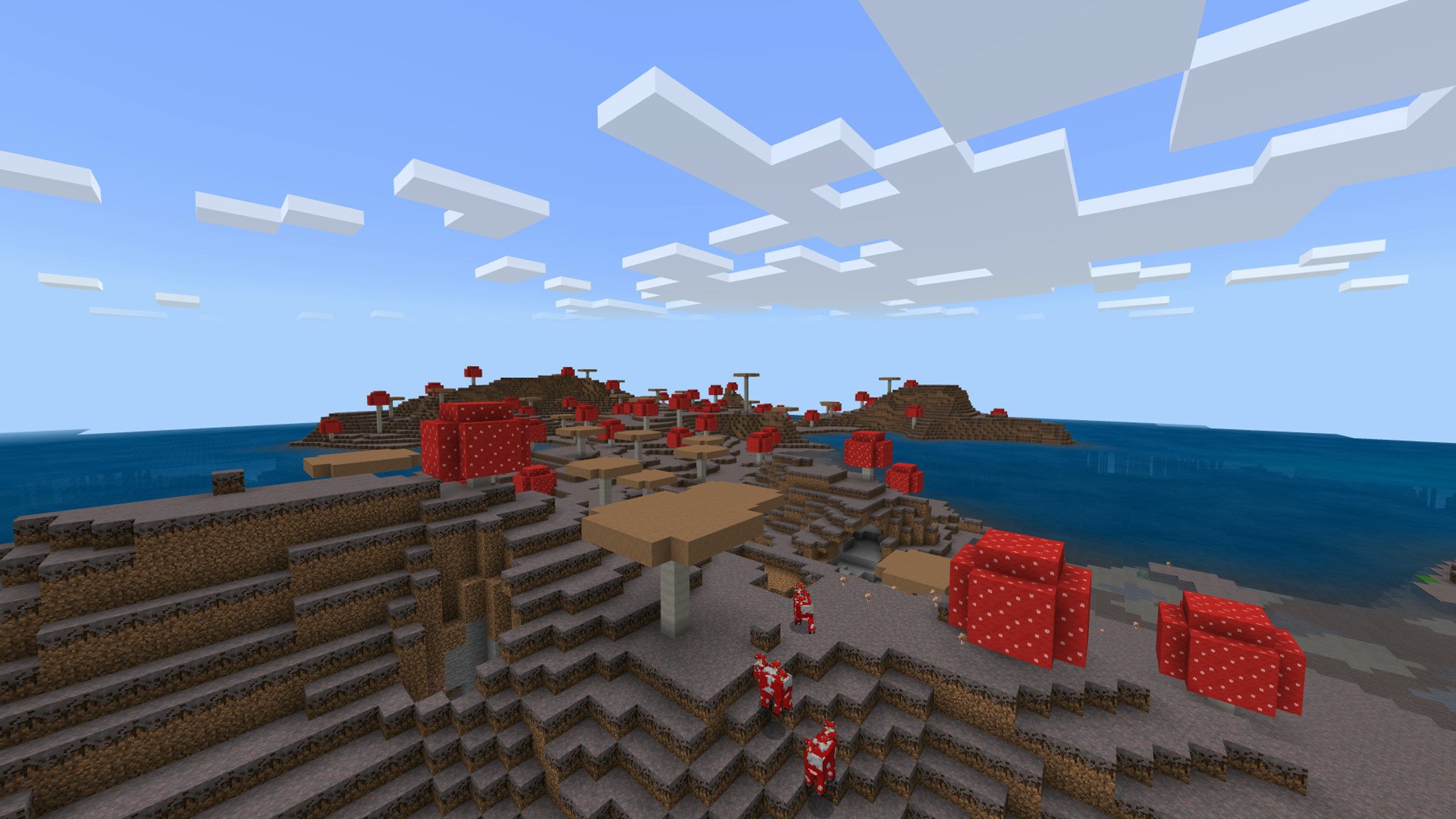
This is a very rare biome that usually generates far away from any other biome in the middle of the ocean. These are large islands built from a rare type of soil called mycelium that accelerates and encourages the growth of mushrooms.
On that note, the mushroom fields are filled with mushrooms of all kinds, including large mushrooms. Mushrooms are the only things that grow naturally on these islands, and a special kind of cow-like mob called mooshrooms are the only kinds of mobs that naturally spawn on the islands. Great for being safe, not great for having a lot to do. Unless you really like mushrooms.
The End
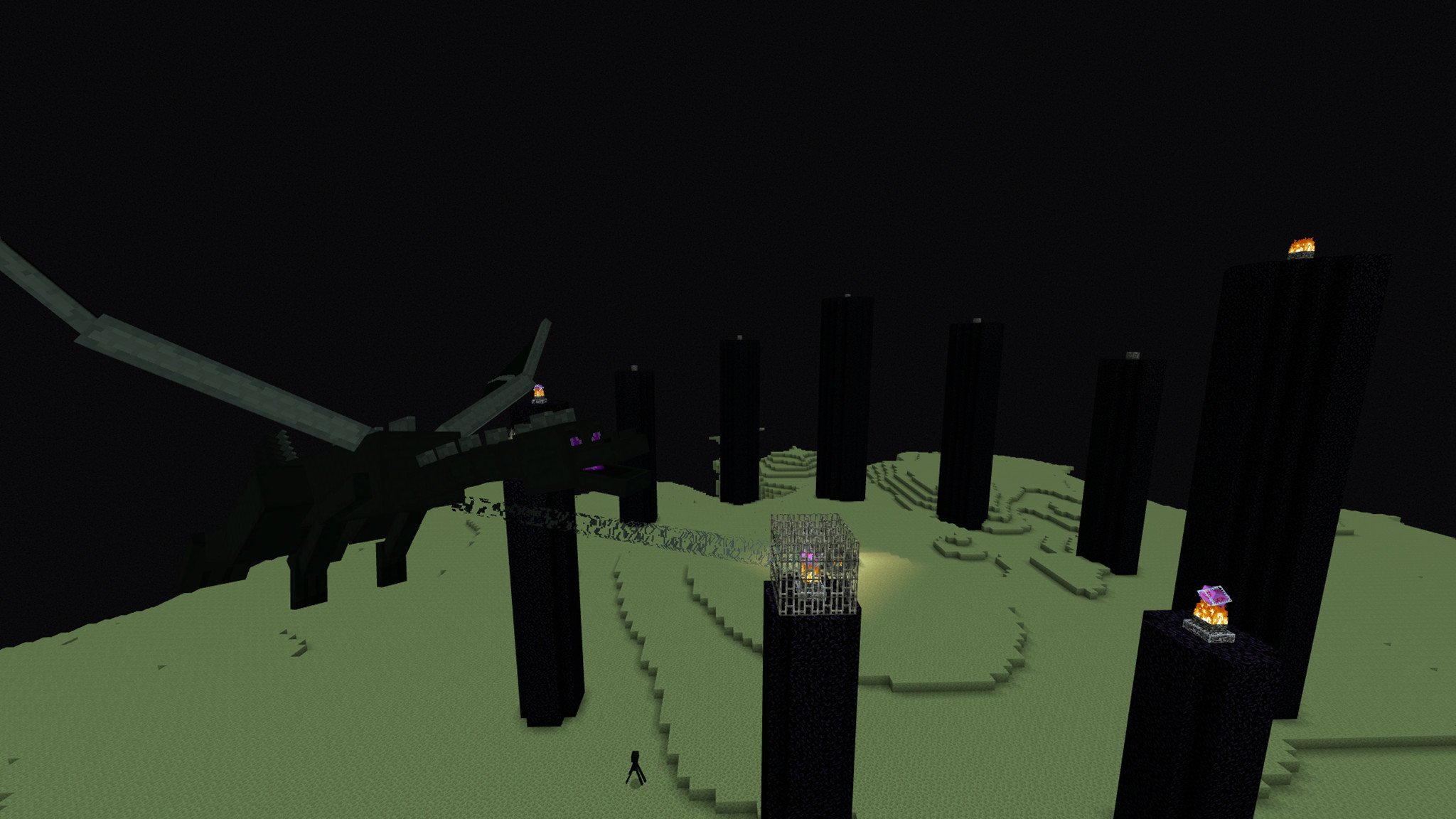
The End is separate from the Overworld and the Nether, and is guaranteed to generate whenever the player finishes the End portal and travels through it. The End is a giant center island surrounded by several smaller areas and islands.
This center island has gigantic obsidian pillars, armies of endermen, a collection of gateways, the End portal, and Minecraft's quintessential boss: the ender dragon. Coming to the End is an endeavor in and of itself, and isn't something you're going to come across accidentally.
End islands
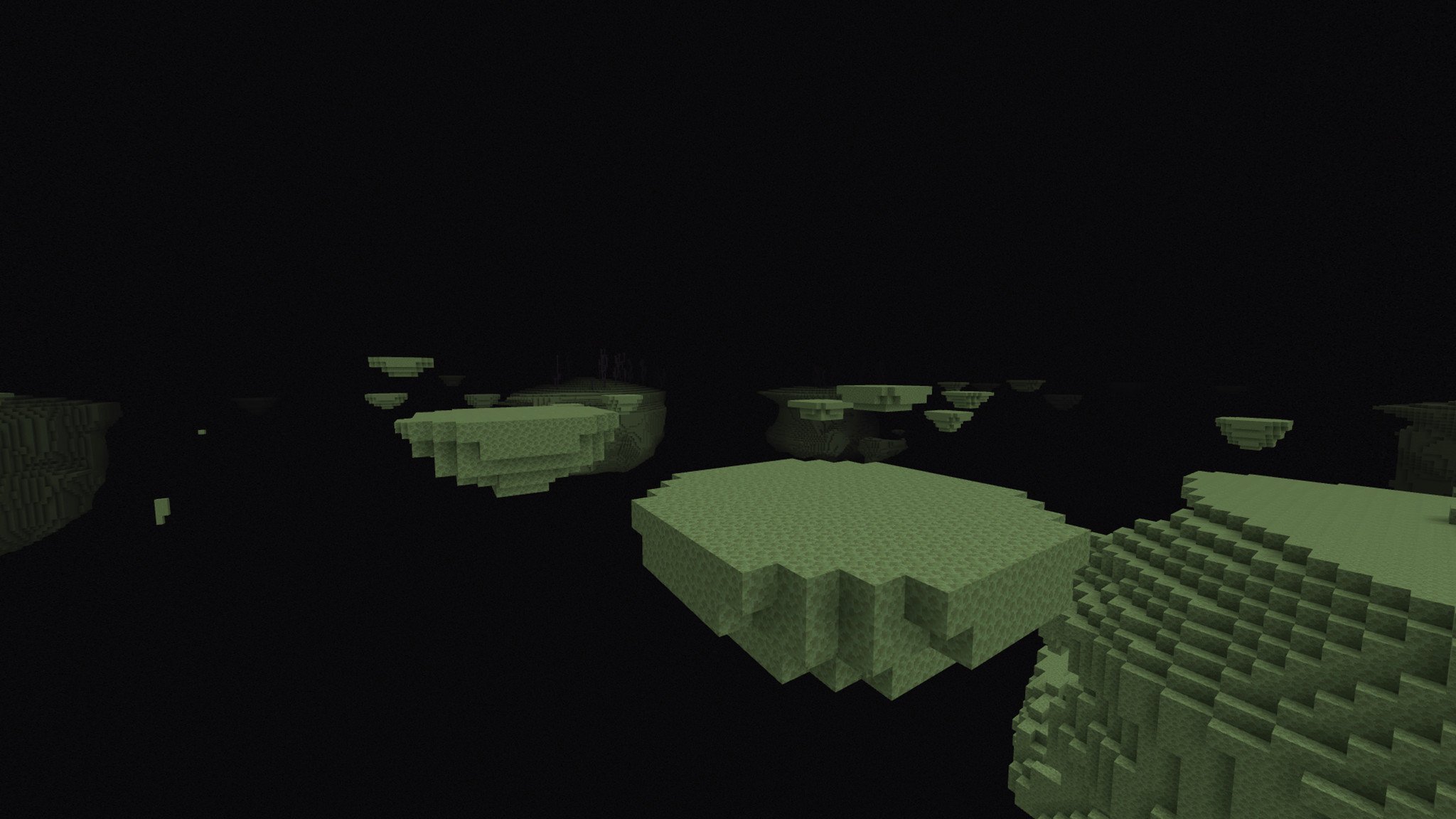
The End islands are the smaller islands that span the void between the larger parts of the End. You're only going to find more endermen on these islands, so they're not particularly exciting. They don't even warrant a second paragraph.
End midlands
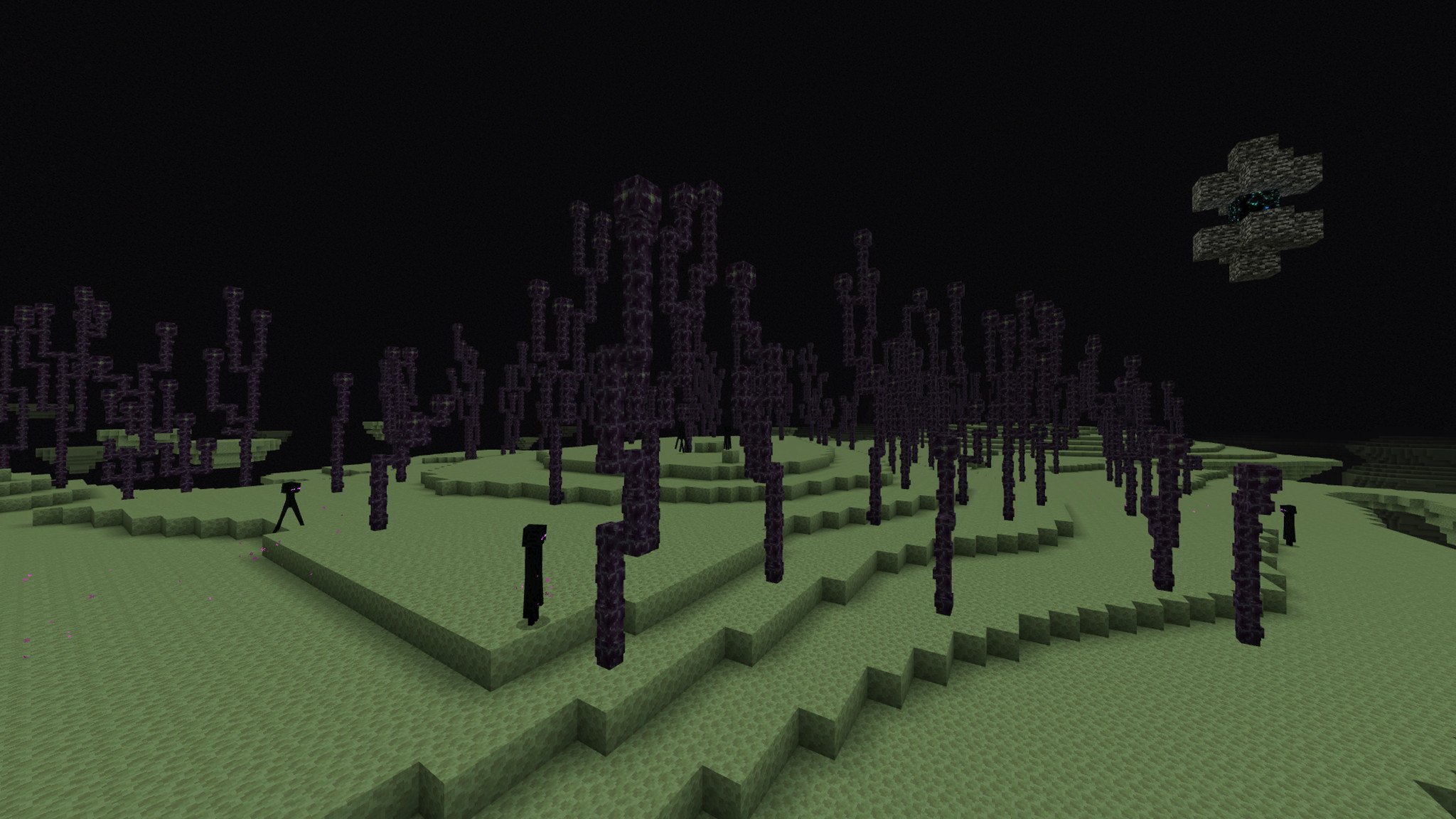
The End midlands are larger areas that transition you from the center to the outer edges of the End. They contain End cities, shulkers, more endermen, and end gateway portals, but little else.
It's useful to explore these biomes if you're interested in shulkers or want to unlock the secrets of the End cities.
End highlands
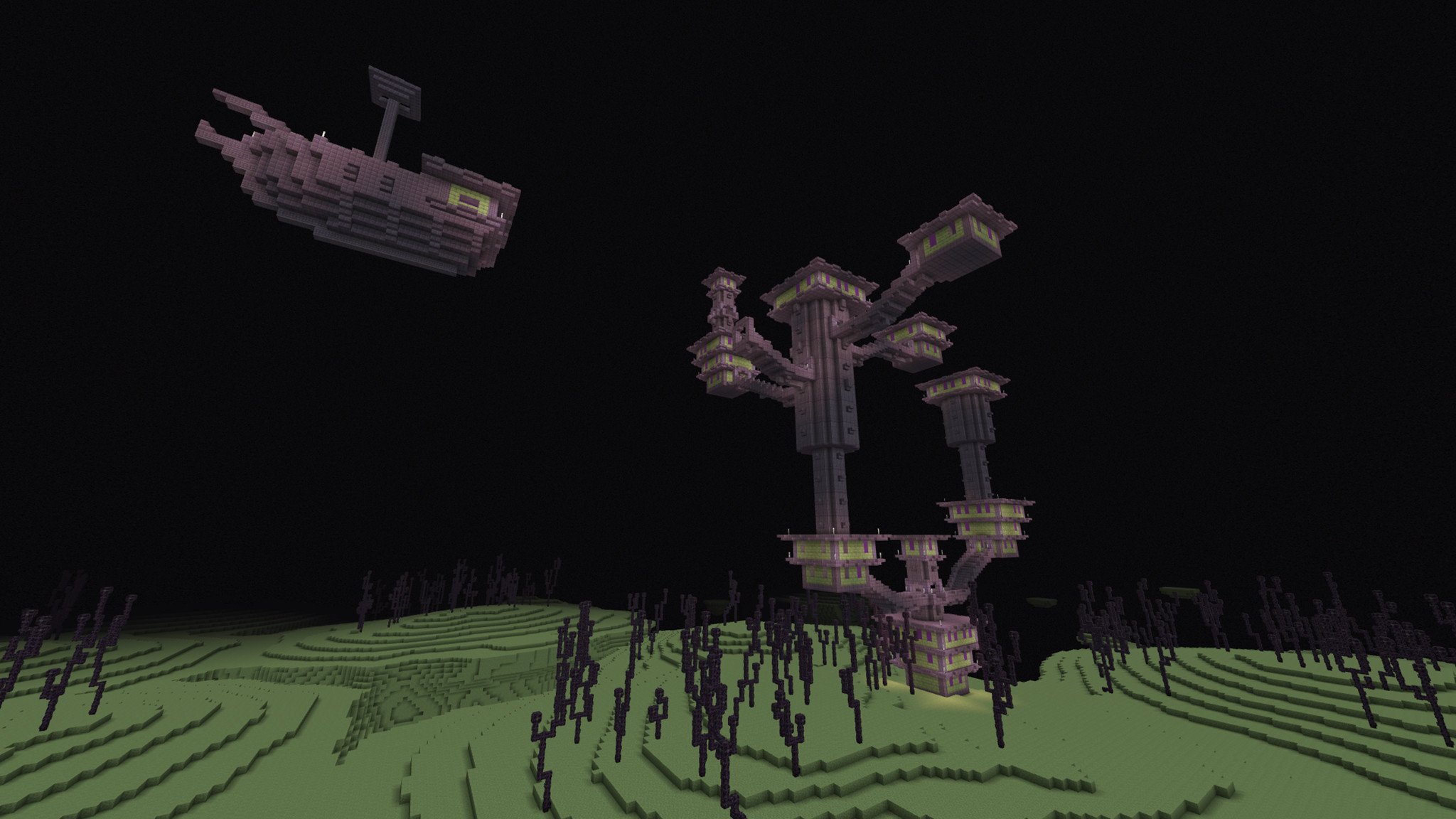
This biome is the pinnacle of the End, and is where you can find End cities and chorus trees. It's essential to keep your wits about you while within these biomes, but the rewards can be lucrative if you are.
The End highlands are the outermost edge of the End, with only one other biome dividing them from the infinite void, and certain death.
End barrens
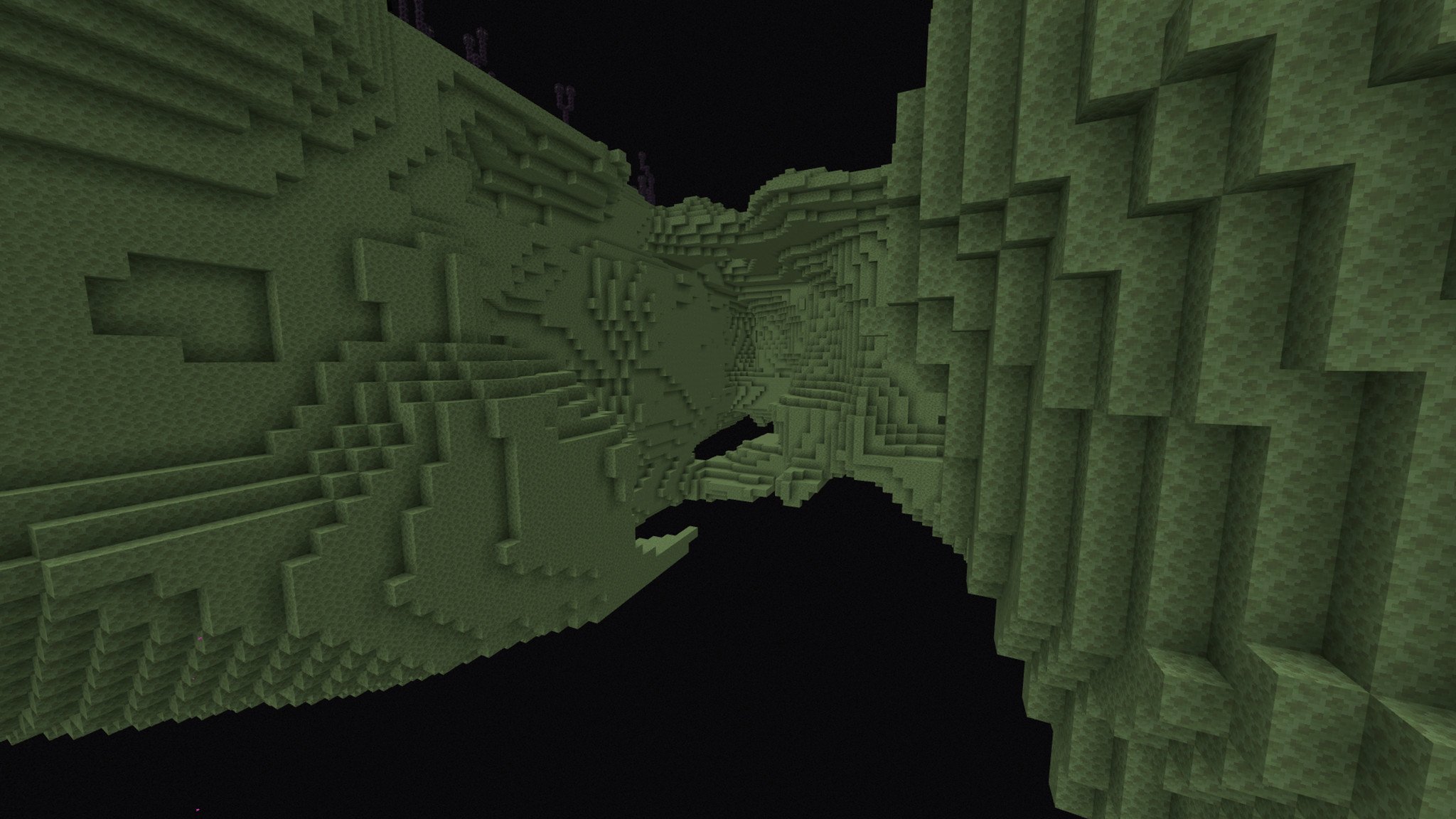
This biome is the equivalent of the beach in the Overworld, or whatever you call a massive cliff into a boiling lake of lava in the Nether. It's the fringe of the End, a series of sheer drops that open into a whole lot of nothing that will definitely kill you.
There's nothing beyond the barrens, and there's nothing to do here. It's about as interesting as the End islands.
The Nether
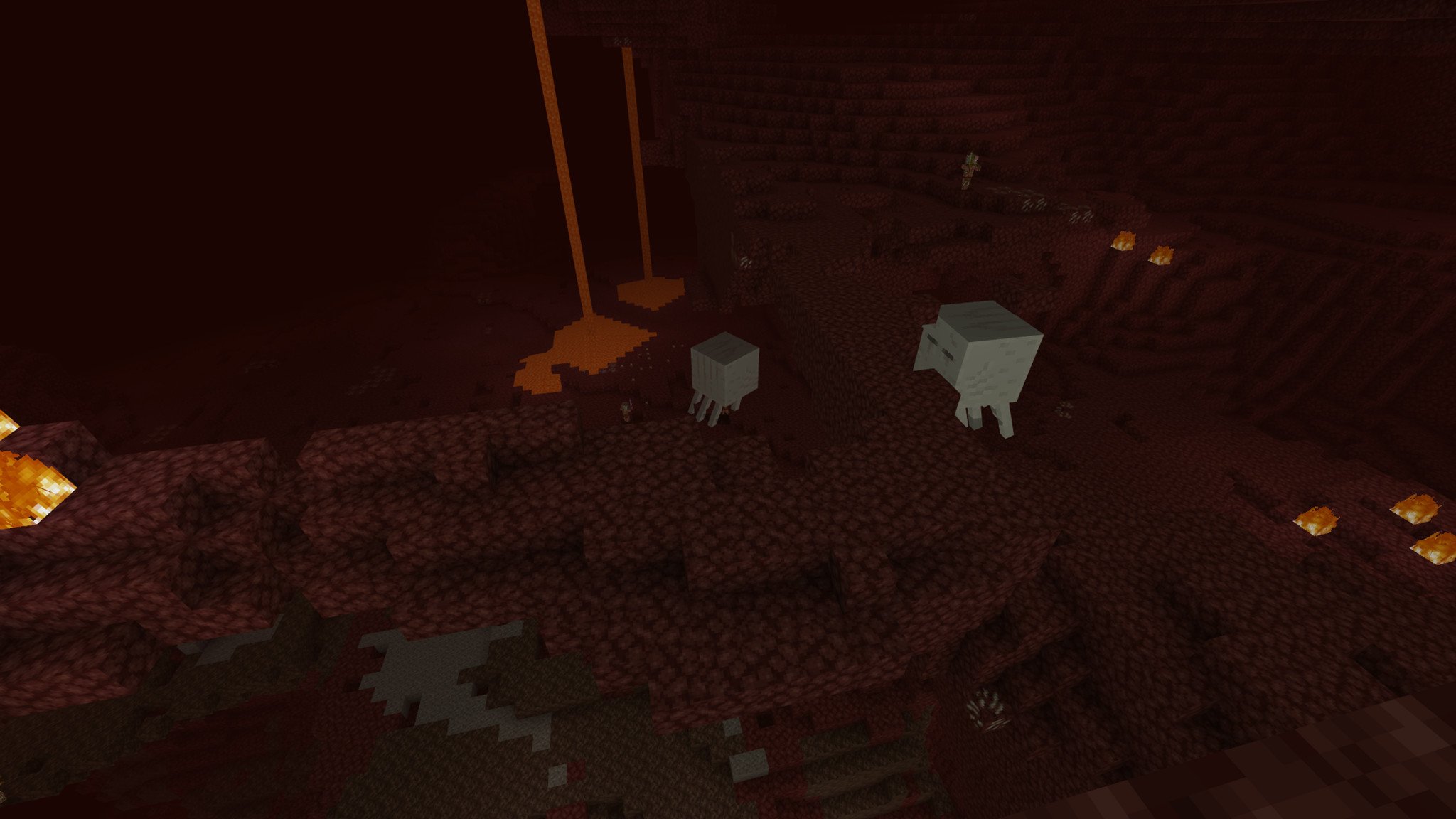
The third dimension in Minecraft's collection is the Nether, a fiery rendition of hell that is in no way friendly or inviting but does have a ton of exclusive resources, making it worth the trip.
As of right now, the Nether has only one biome. However, an upcoming update to this iconic nightmare zone will add a ton of new things to the Nether, as well as some additional biomes. I'll be sure to update this guide when that happens.

Zachary Boddy (They / Them) is a Staff Writer for Windows Central, primarily focused on covering the latest news in tech and gaming, the best Xbox and PC games, and the most interesting Windows and Xbox hardware. They have been gaming and writing for most of their life starting with the original Xbox, and started out as a freelancer for Windows Central and its sister sites in 2019. Now a full-fledged Staff Writer, Zachary has expanded from only writing about all things Minecraft to covering practically everything on which Windows Central is an expert, especially when it comes to Microsoft.
